Best cheap electric guitars 2025: epic budget electrics
Our experts pick the best cheap electric guitars for rock, metal and blues players on a budget
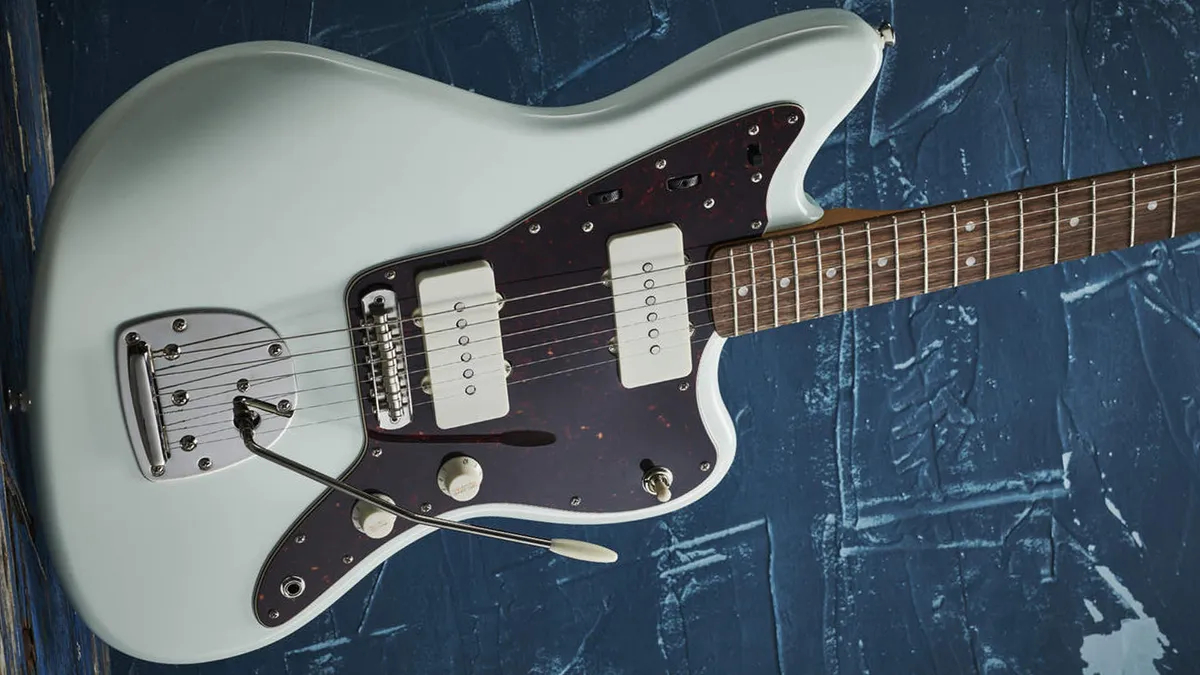
1. Quick list
2. Best for beginners
3. Best hollow body
4. Best for rock
5. Best with P-90s
6. Best on a budget
7. Best cheap offset
8. More options...
9. Buying advice
10. How we choose
With so many different brands all competing within the entry-level instrument market, there is an upside to us as players, and that is that the best cheap electric guitars are actually better than ever. Some of the biggest and most respected manufacturers are producing quality instruments at fantastic prices.
Years ago, it used to be that many entry-level instruments were more like toys. Now, however, the best cheap electric guitars are of a really good standard and are more than up to regular gigging, long practice sessions and recording. Of course, cheap guitars are popular amongst beginners, but you’ll find many experienced players are looking to them to expand their collection or as backups for their more expensive guitars.
The best cheap electric guitars come from some huge names including Squier, Yamaha, Ibanez, Epiphone and loads more. Generally, we’re looking at guitars under the £/$500 mark, as it’s here you’ll get a big crossover between quality and affordability.
In this buying guide, we've outlined our choices for the best cheap electric guitars available for you to order right now, and we've also included some helpful buying advice at the bottom of this page to help you make your decision.
Best cheap electric guitars: Quick list
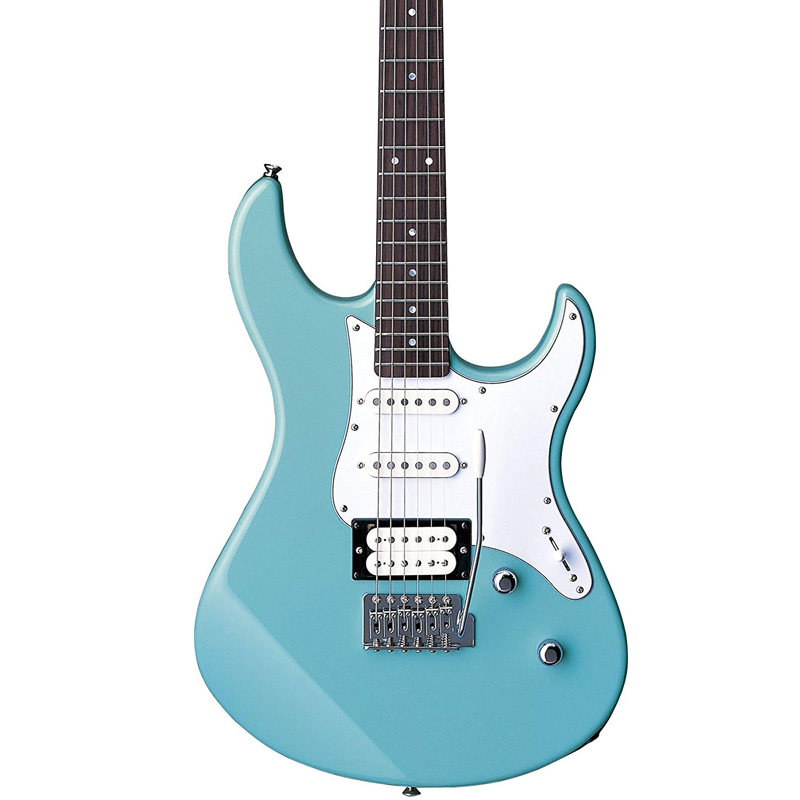
The Yamaha Pacifica has long proved a benchmark for quality and specification, and the 112V remains one of the best guitars for beginners. The 112 is far from fancy and simply concentrates on the bare necessities. Yet the construction is of excellent quality. Trust us, if looked after well, this will be a guitar for life.
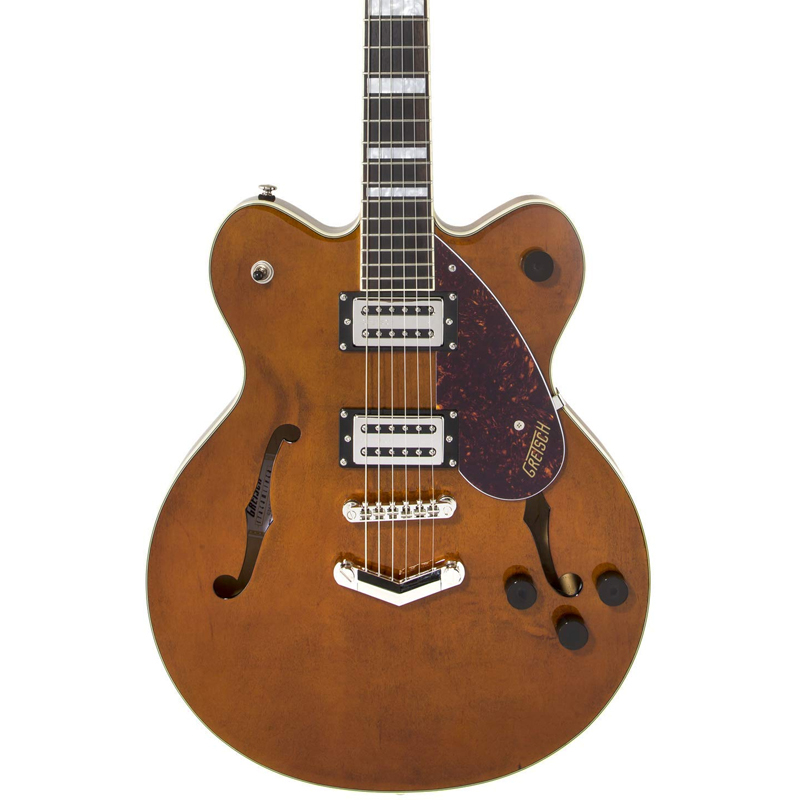
The Streamliner concept is simple: to create more affordable Gretsch guitars without losing their specific DNA. Two new Broad'Tron humbuckers are controlled in classic Gretsch style by a three-way toggle selector switch on the bass side shoulder, a master volume on the treble side horn, and then a trio of controls by the treble-side f-hole for individual-pickup volume and master tone.
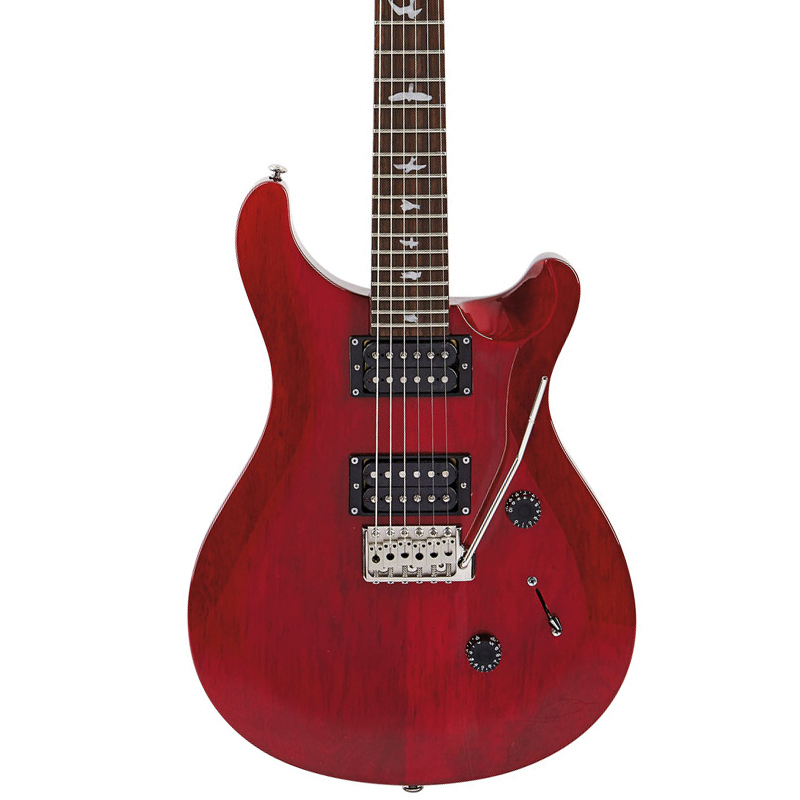
You might expect PRS's budget take on its venerable Custom 24 to pale in comparison to the real deal, but that certainly isn't the case. Considering the price, this is one impressively put-together instrument; we scoured our review model for signs of the guitar's price tag, and all we could find was a slightly loose vibrato arm fitting – a minor point.
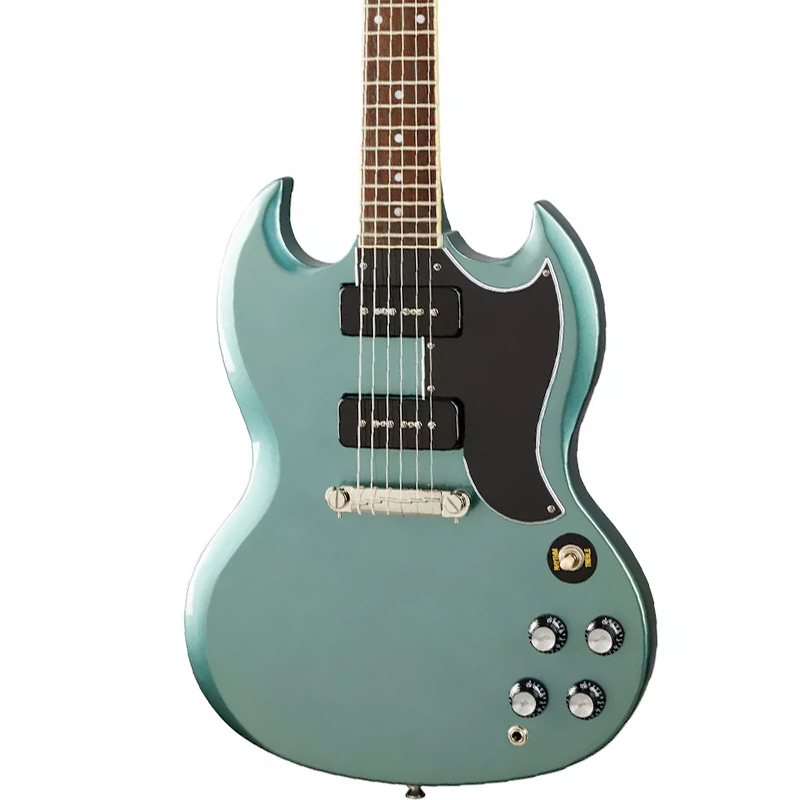
This guitar is directly inspired by the Gibson of the same name and offers players everything they’ve come to expect from the SG Special at a more affordable price. Featuring a mahogany body, slim tapper 60s neck, lightening wrap around bridge and a choice of two stunning finishes, this guitar definitely looks, sounds and feels like the real deal.
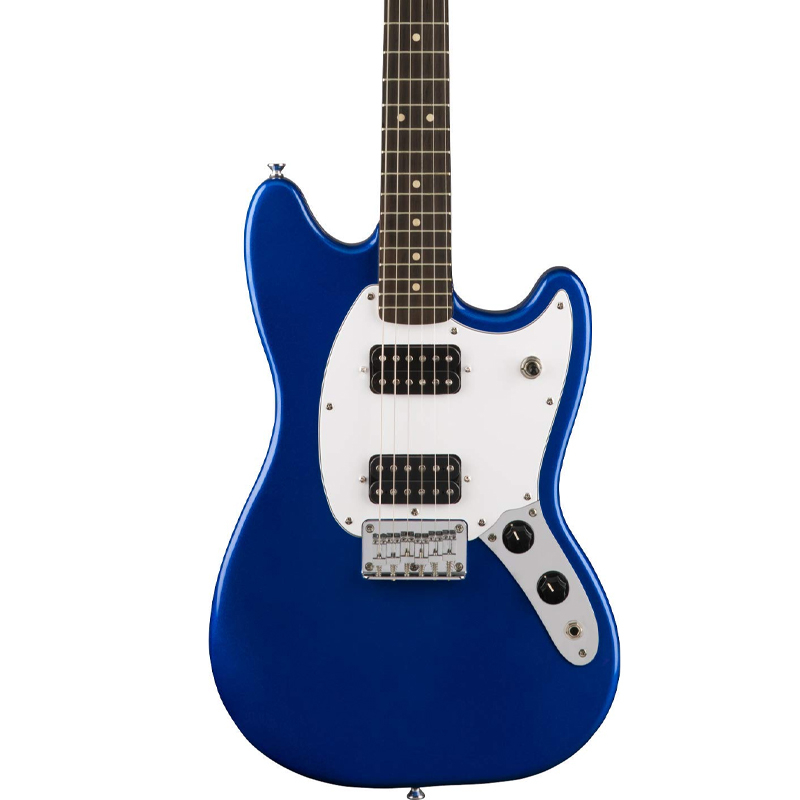
Squier's Bullet Mustang is one of the coolest Squier guitars available on the market today. Taking the short scale, sort-of offset body and great playability from the traditional Mustang, the Bullet version has been refreshed, reignited and hot-rodded to another level - all while staying firmly in the budget and beginner price bracket.
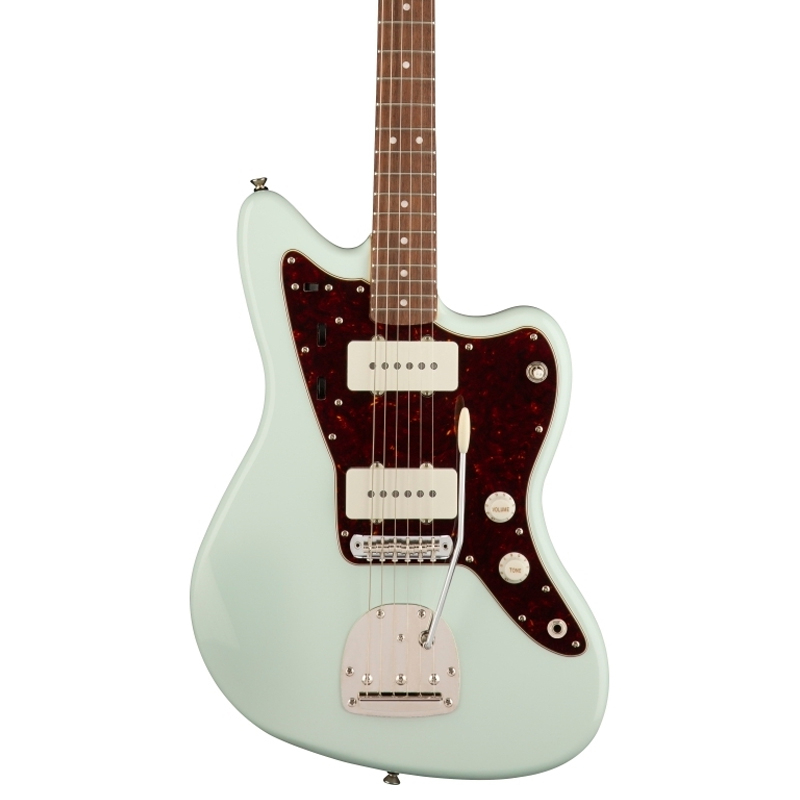
We’ve seen a bit of a Jazzmaster revival over the last few years, with anyone from Alex Turner of Arctic Monkeys to Jim Root of Slipknot playing one. The Fender formula of a 25.5” scale length and single coil pickups is one that’s as old as the hills, but the offset design still feels modern over 60 years later.
Best for beginners
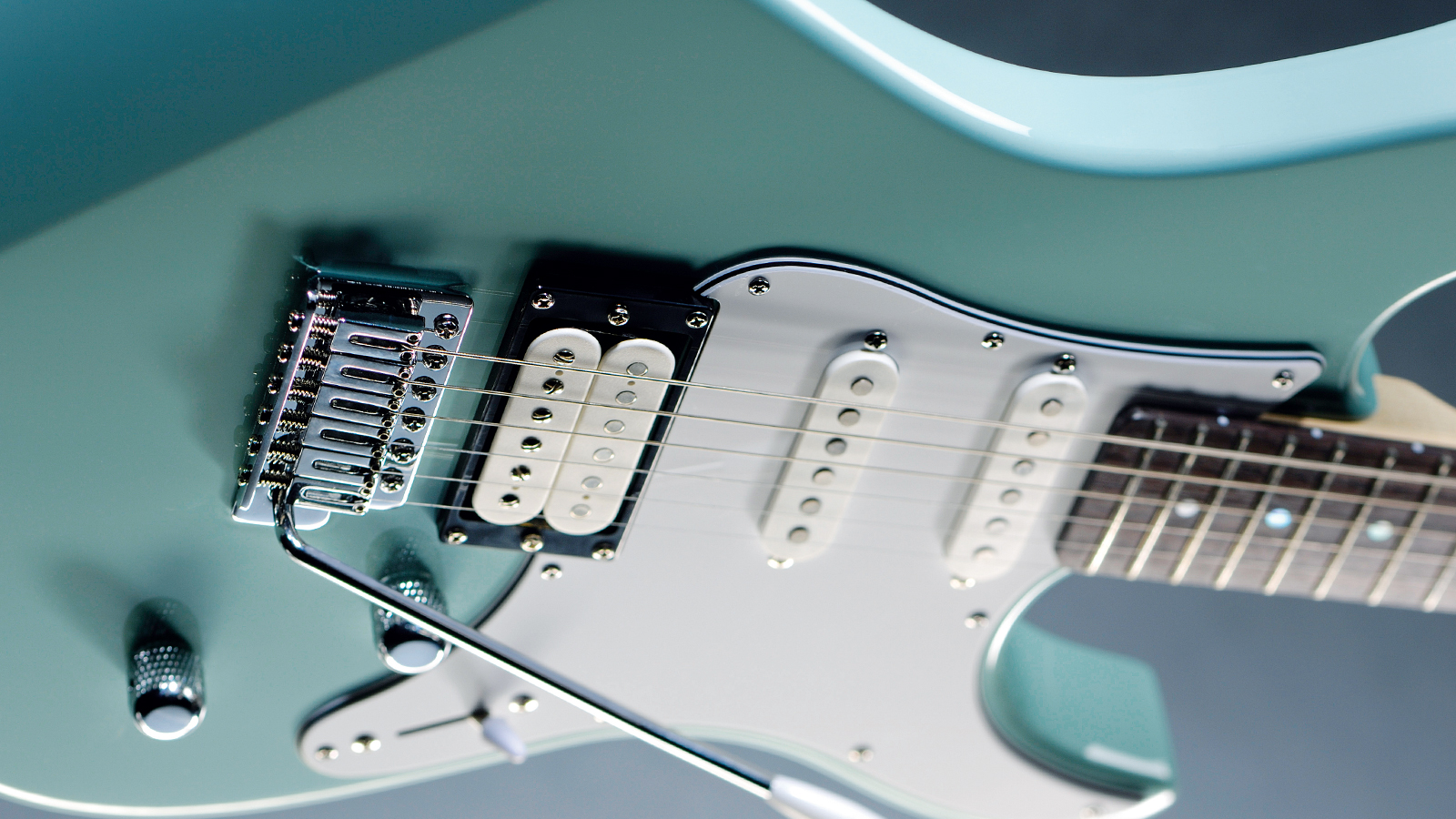
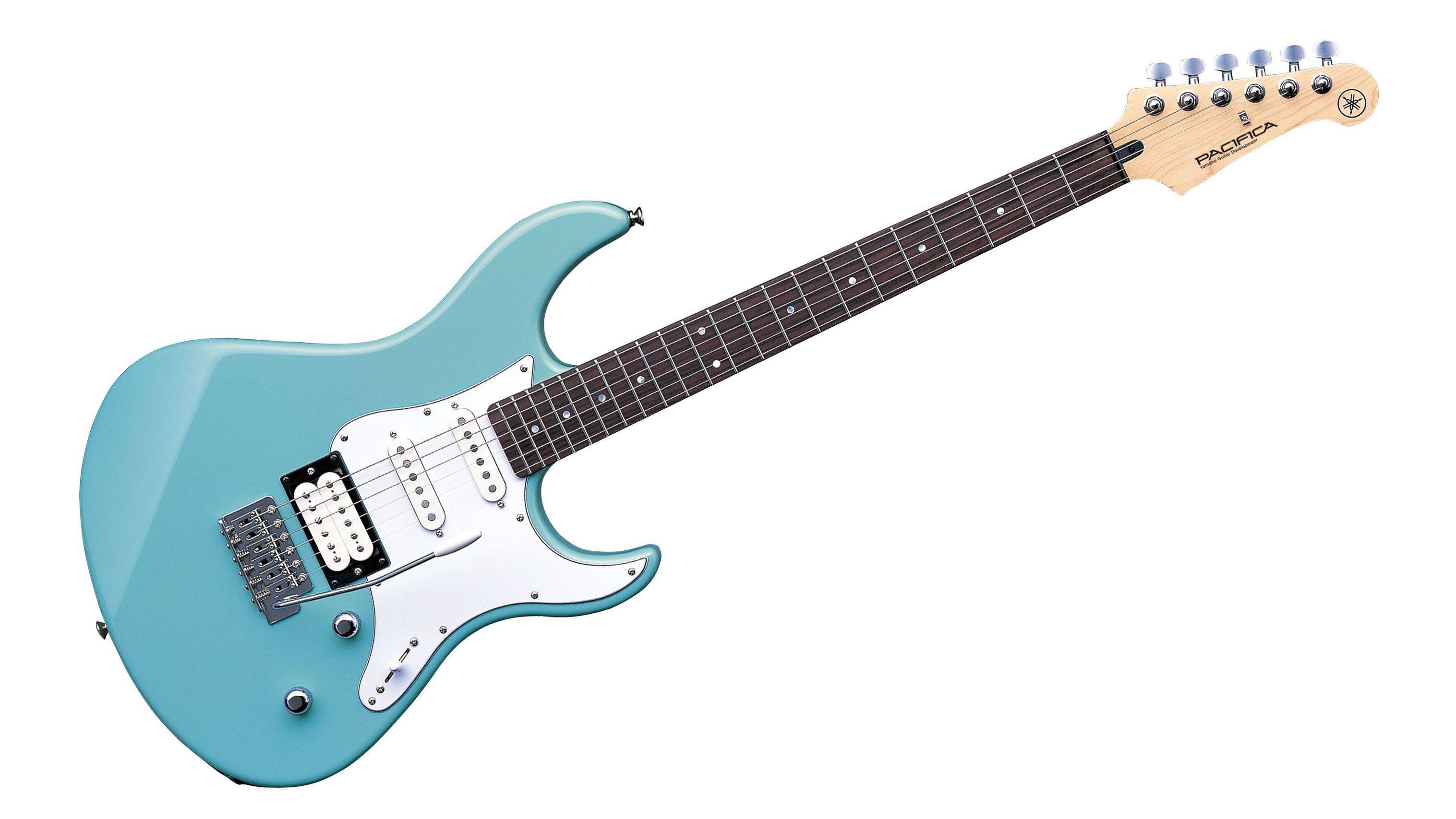
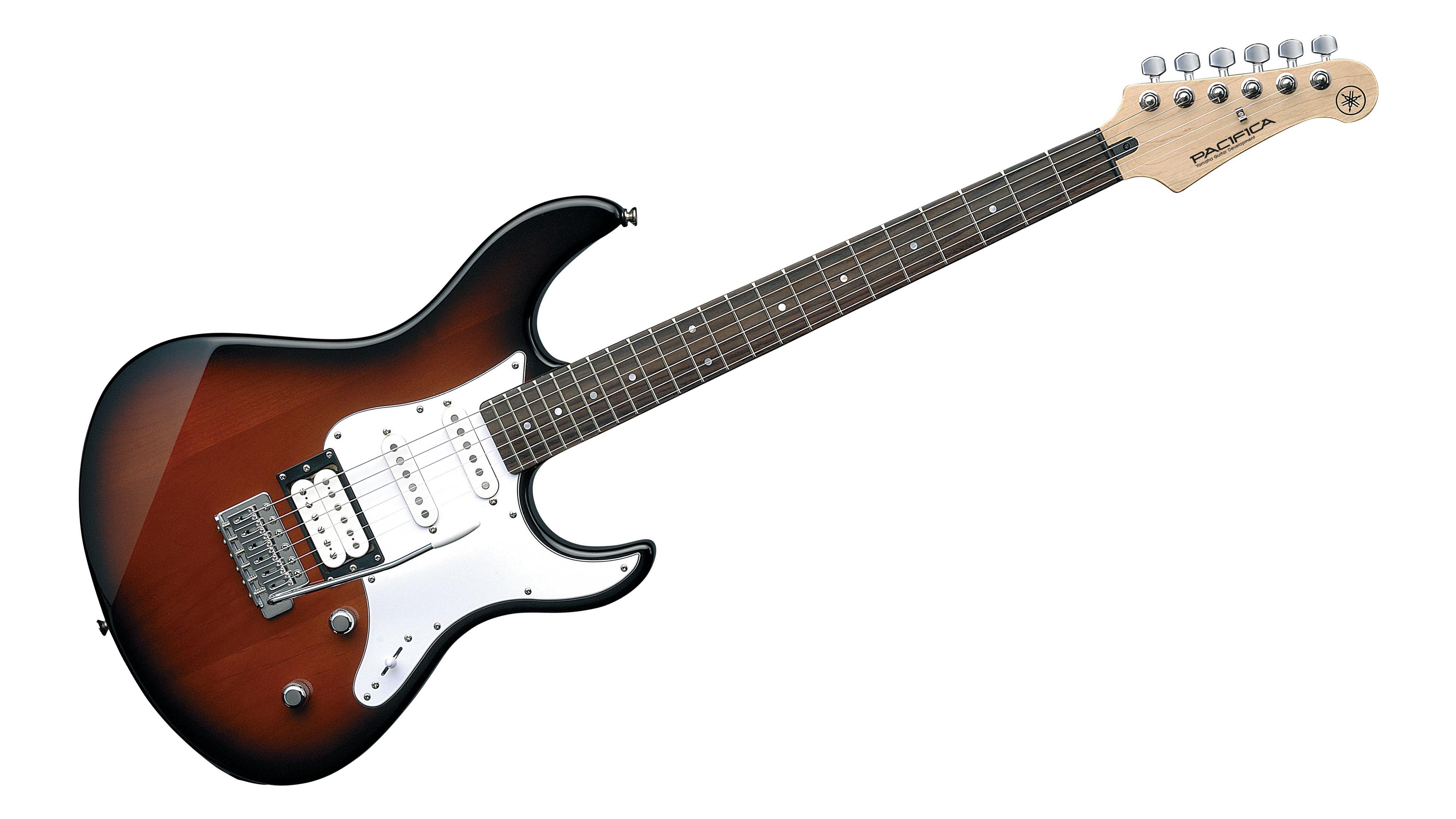
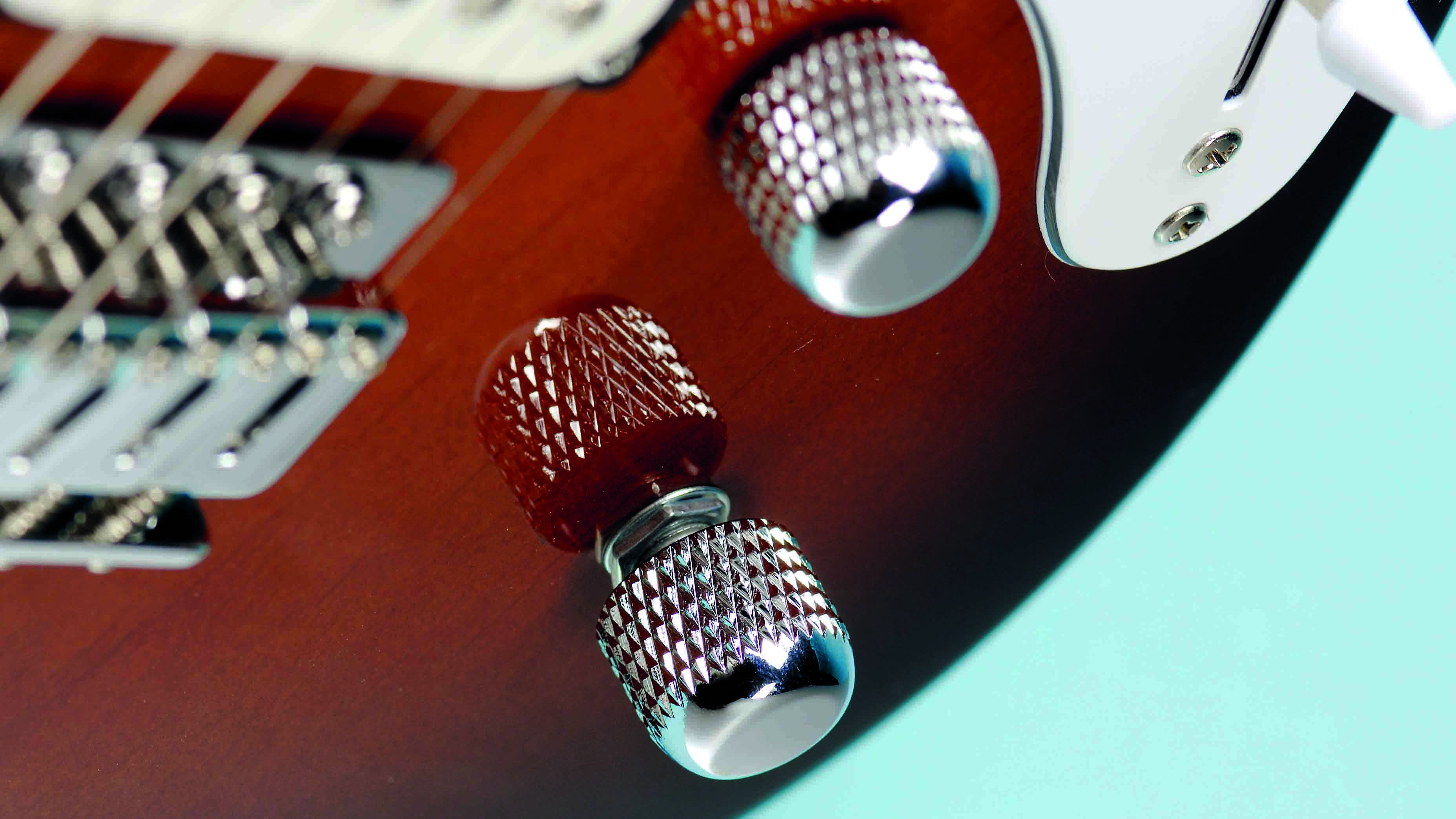
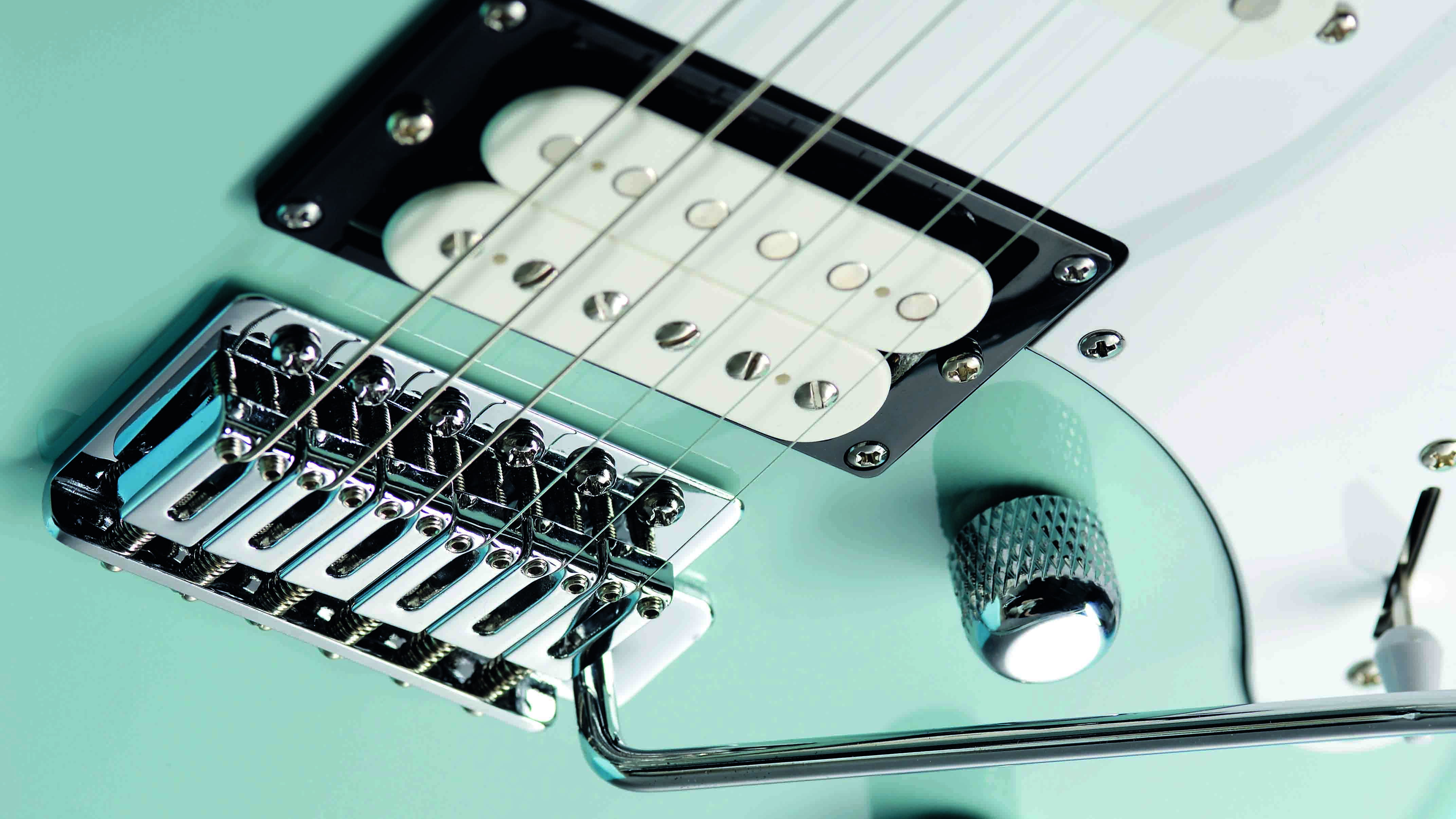
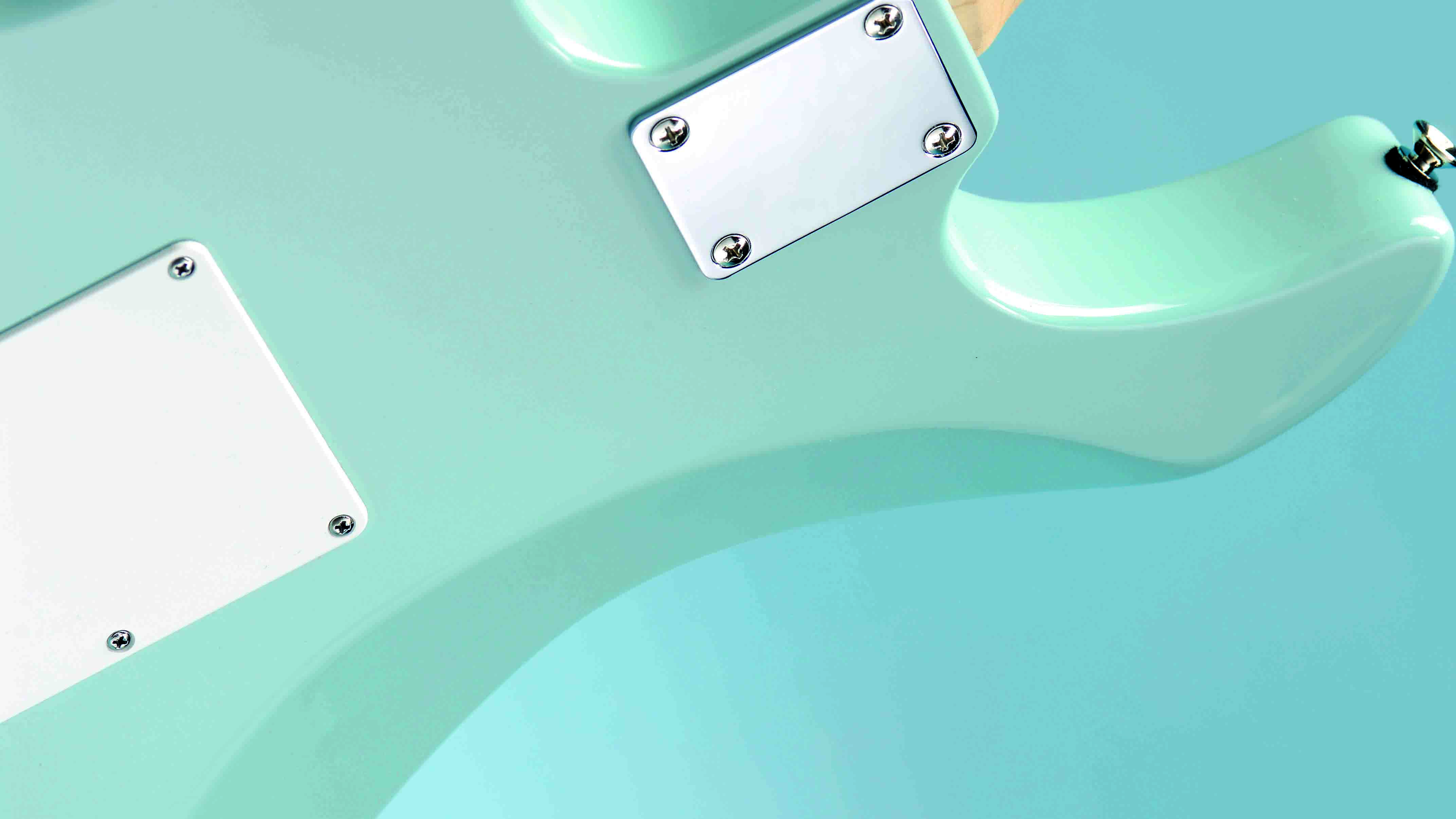
Specifications
Reasons to buy
Reasons to avoid
The Yamaha Pacifica has long proved a benchmark for quality and specification, and the 112V remains one of the best guitars for beginners. The 112 is far from fancy and simply concentrates on the bare necessities. Yet the construction is of excellent quality. Trust us, if looked after well, this will be a guitar for life.
By design it's an altogether more modern, brighter and lighter take on a hot-rod Strat. But when we say brighter that doesn't mean overly shrill. In fact the bridge humbucker will surprise some, it's beefy without being too mid-range heavy and although the coil-split proves a little bland played clean, with a distortion boost it's a pretty useful gnarly and wiry rhythm voice.
It's good to have the choice too when mixed with the middle pickup - switching between the full and split coil here is subtle but, especially with cleaner 'class A' amp voicings, there's enough character difference to be useable.
The solo single-coils impress - plenty of percussion and with a little mid-range beef added from the amp these get you to the correct Texas toneland. Neck and middle combined produces a fine modern Strat-like mix - the added brightness will cut through a multi-FX patch nicely.
Read our full Yamaha Pacifica 112V review
Best hollow body
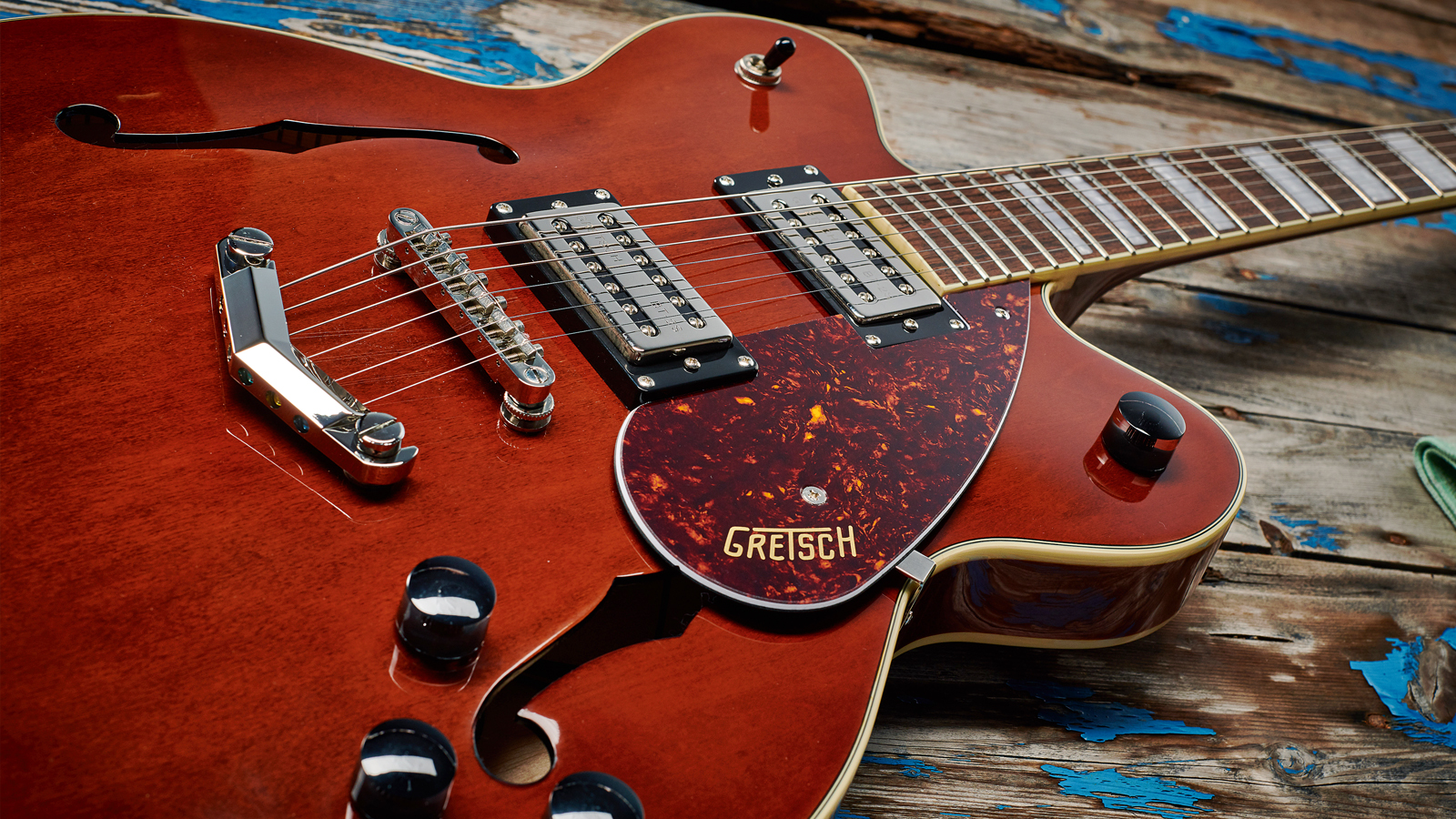
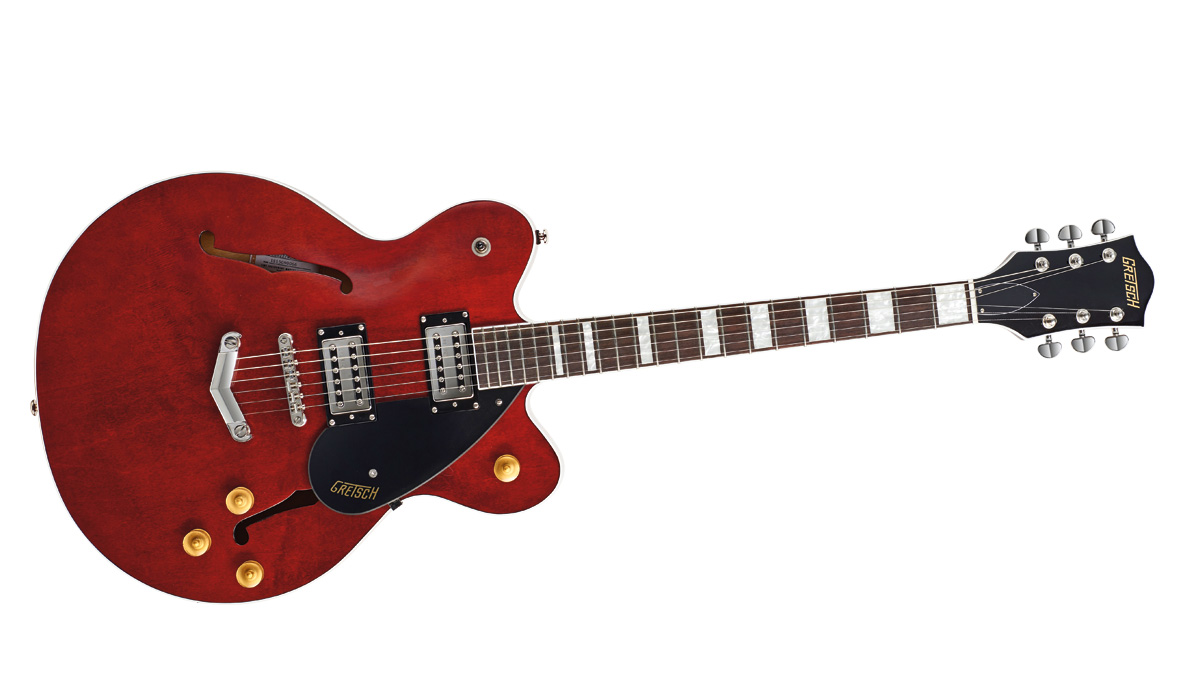
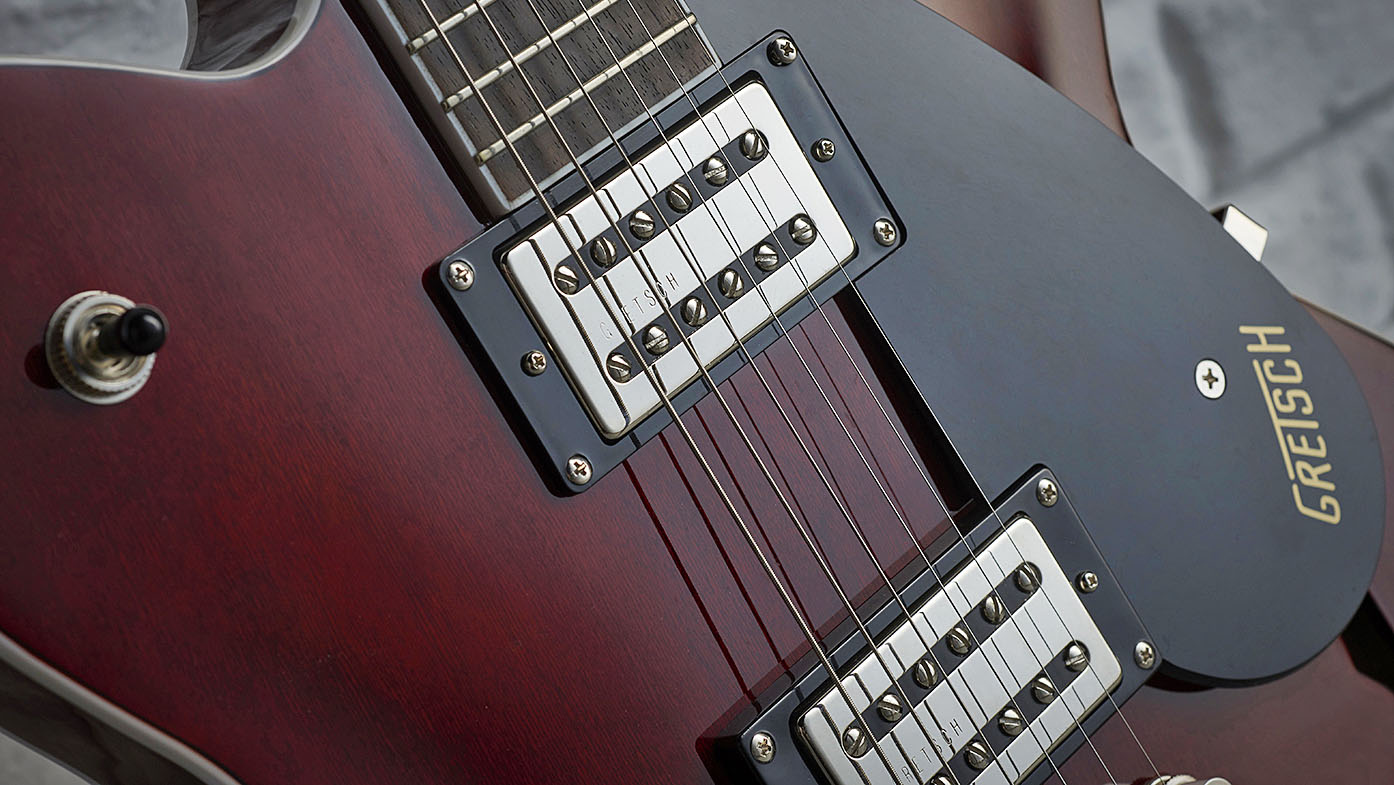
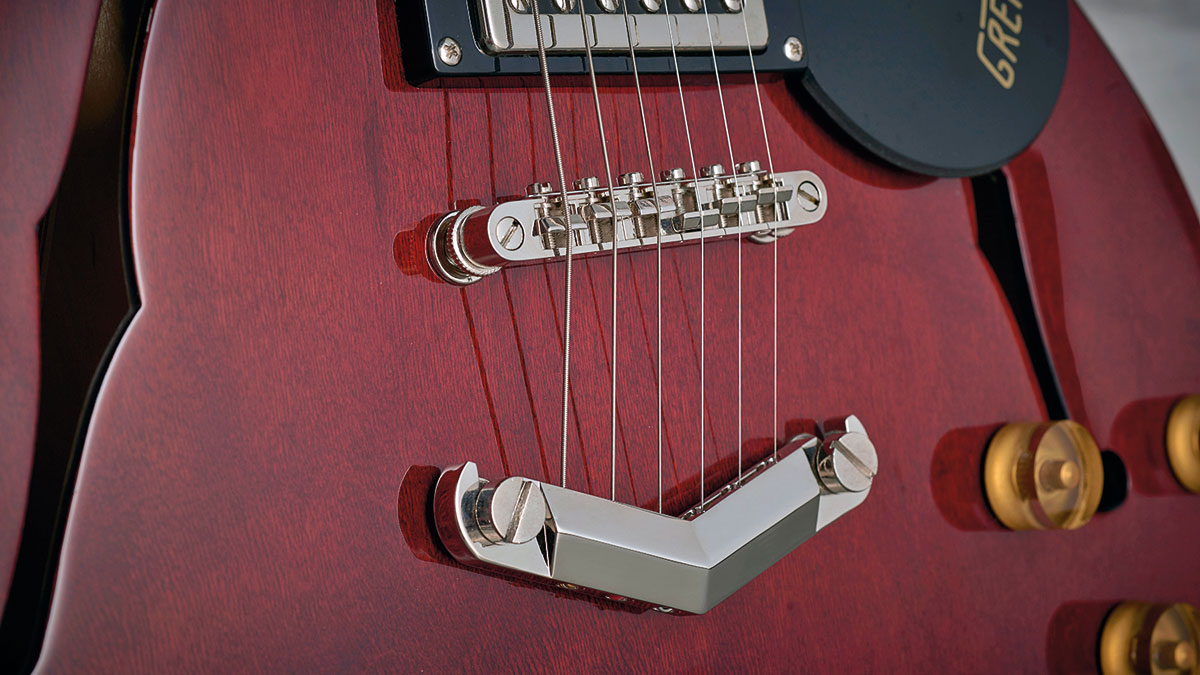
Specifications
Reasons to buy
Reasons to avoid
The Streamliner concept is simple: to create more affordable Gretsch guitars without losing their specific DNA. Two new Broad'Tron humbuckers are controlled in classic Gretsch style by a three-way toggle selector switch on the bass side shoulder, a master volume on the treble side horn, and then a trio of controls by the treble-side f-hole for individual-pickup volume and master tone.
The G2622's construction gives a different response and resonance to other new releases from Gretsch and, with these pickups, moves further from the Gretsch sound. And while its construction gives it a more solid, or at least ES-335, character, it's a little more airy and less punchy with a softer, squashier tonality.
The beefier pickups certainly don't nail a classic Gretsch tonality – although if that's what you want, the full-size pickups are easy to replace – but they do broaden the sonic potential, especially for more gained styles, while staying close to the classic iconography. If you want a great-value semi-hollow, this is among the best electric guitars.
Read our full Gretsch G2622 Streamliner review
Best for rock
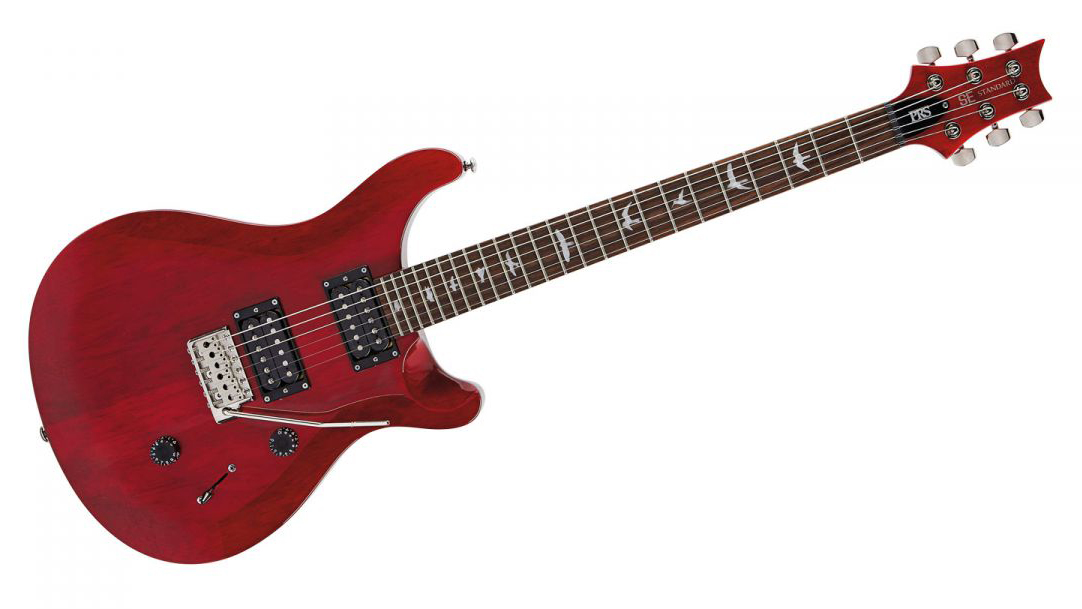
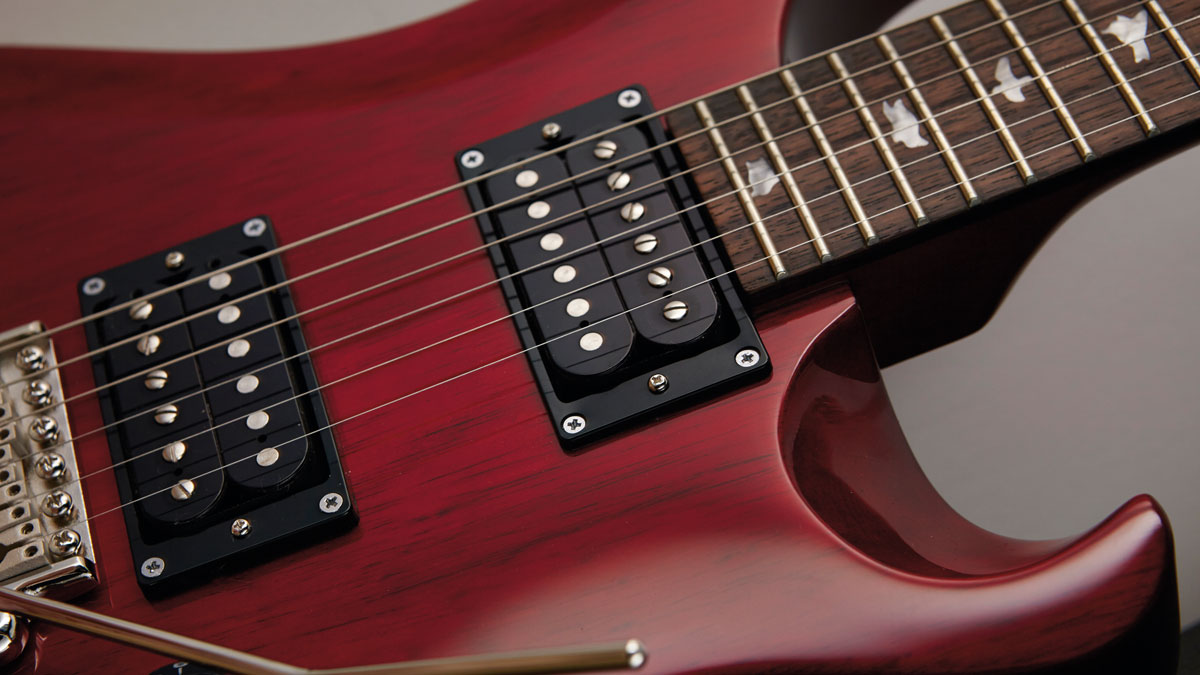
Specifications
Reasons to buy
Reasons to avoid
You might expect PRS's budget take on its venerable Custom 24 to pale in comparison to the real deal, but that certainly isn't the case. Considering the price, this is one impressively put-together instrument; we scoured our review model for signs of the guitar's price tag, and all we could find was a slightly loose vibrato arm fitting – a minor point.
Like the traditional USA-made Custom 24 design, there's no scratchplate, so the SE Standard 24's electronics are installed in a cavity. The non-locking SE-level tuners are smooth-handling, and visually, you'd struggle to distinguish the vibrato from top-end PRS guitars.
The SE Standard isn't quite as refined or sleek a playing experience as PRS's S2 and above models, courtesy of the chunkier Wide Thin profile, higher action and slightly creaky vibrato response, but a more player-personal setup helps to rectify that. The tones are here, though: searing solos, toasty rhythms and coil-split quack are all within reach. At this price, it's an impressive performance from one of the top electric guitar brands in the market.
Read our full PRS SE Standard 24 review
Best with P-90s
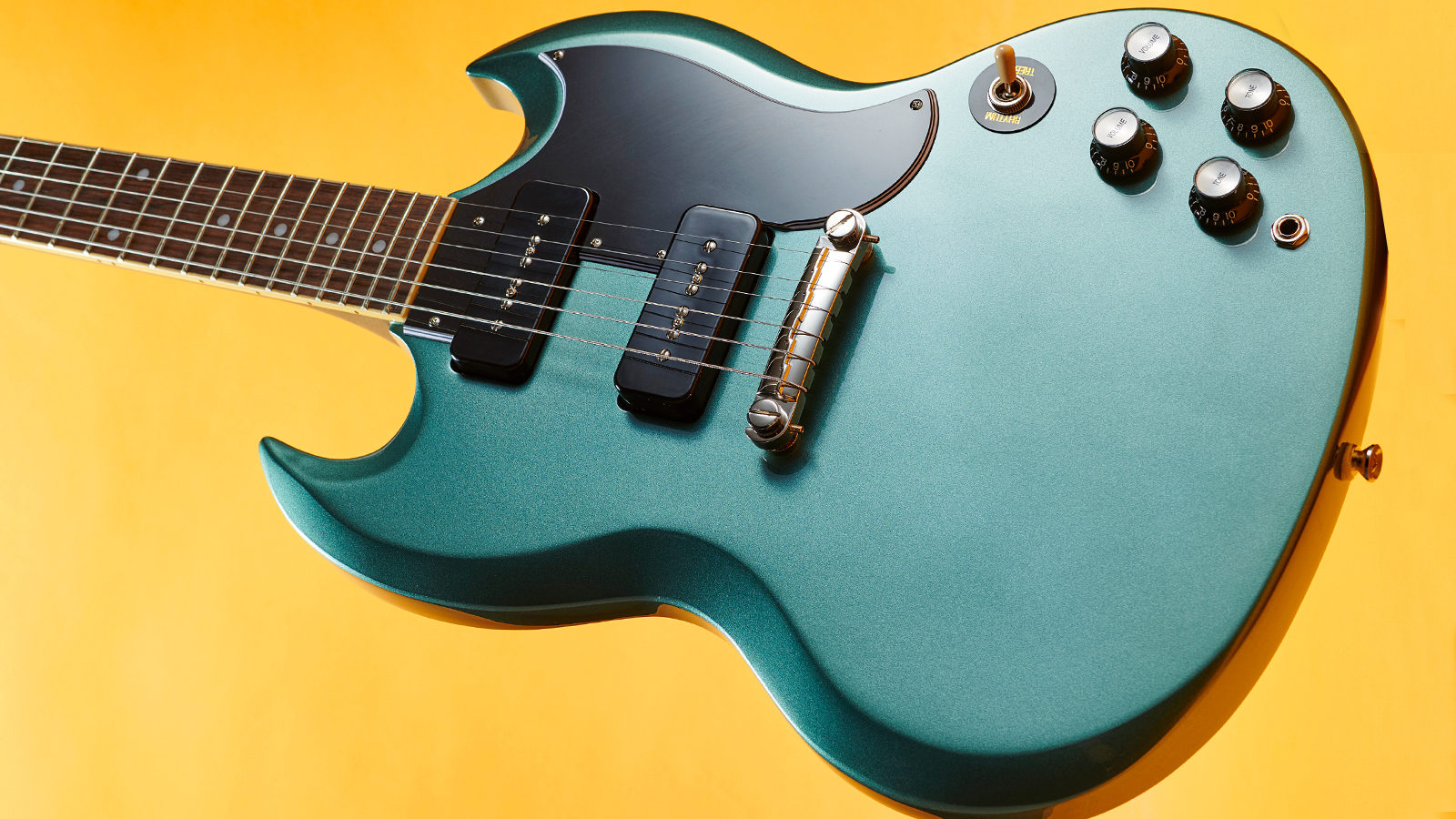
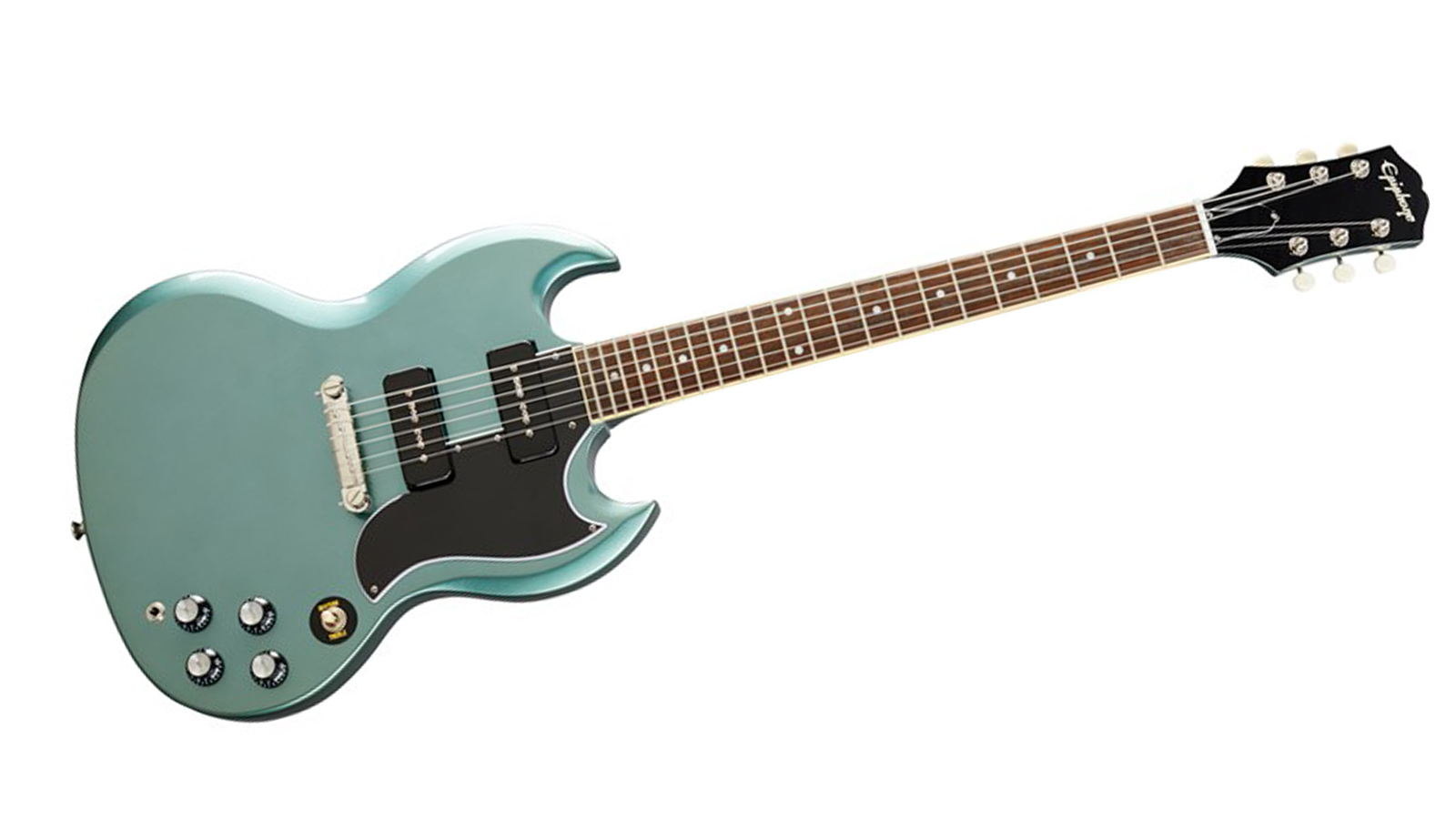
4. Epiphone SG Special P-90
Our expert review:
Specifications
Reasons to buy
Reasons to avoid
Many players are drawn in by the devilishly good looks of the SG, but its fierce tonal bark and lightning-fast neck is what keeps them coming back for more. Now, we’ve opted to include the Epiphone SG Special on this best cheap electric guitar list, as we can’t get enough of the warm tone associated with the P-90.
This guitar is directly inspired by the Gibson of the same name and offers players everything they’ve come to expect from the SG Special at a more affordable price. Featuring a mahogany body, slim tapper 60s neck, lightening wrap around bridge and a choice of two stunning finishes, this guitar definitely looks, sounds and feels like the real deal.
So if you are looking for a classic axe capable of covering everything from blues to indie, jazz to hard rock, this is the guitar for you.
Best on a budget
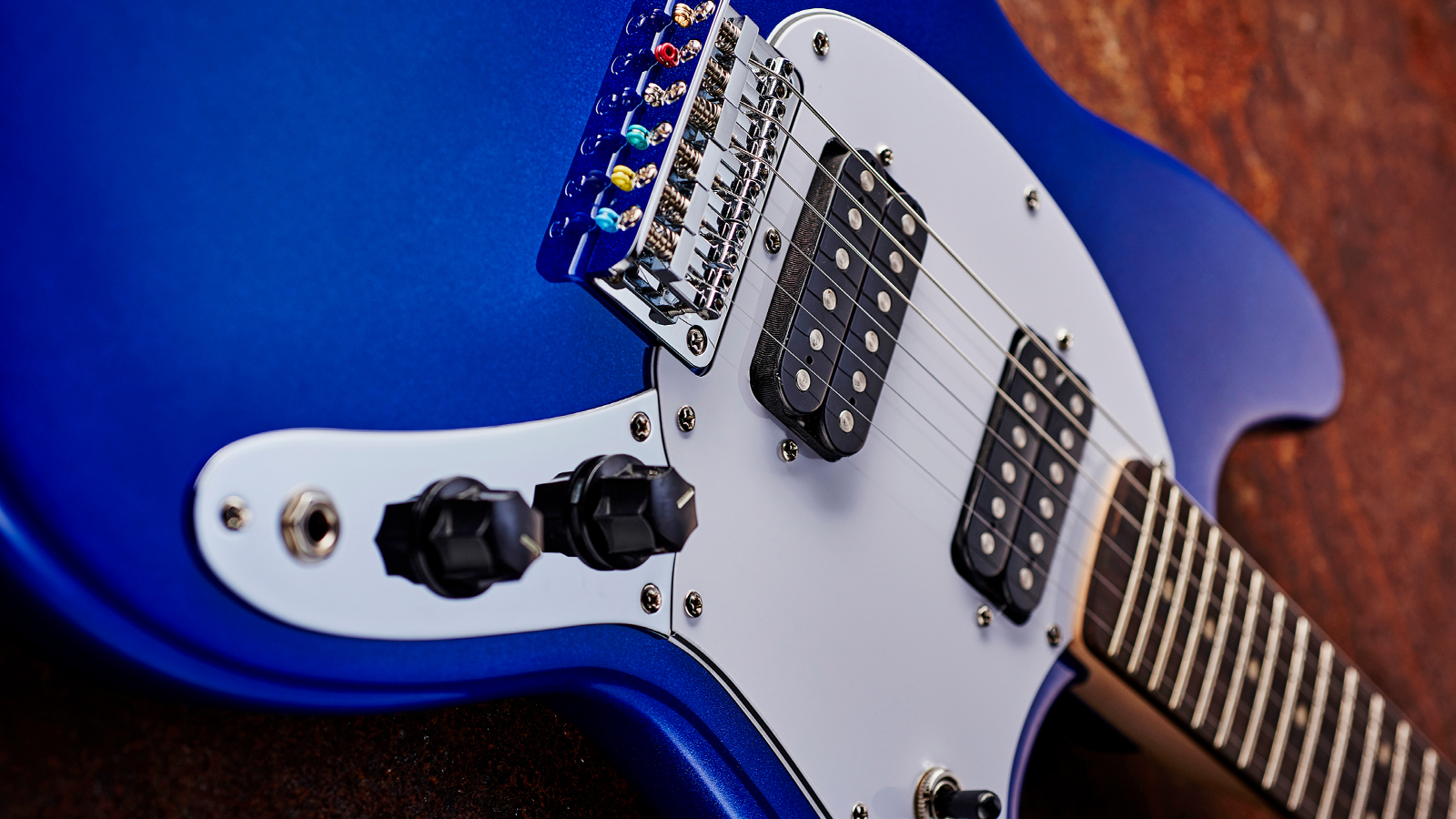
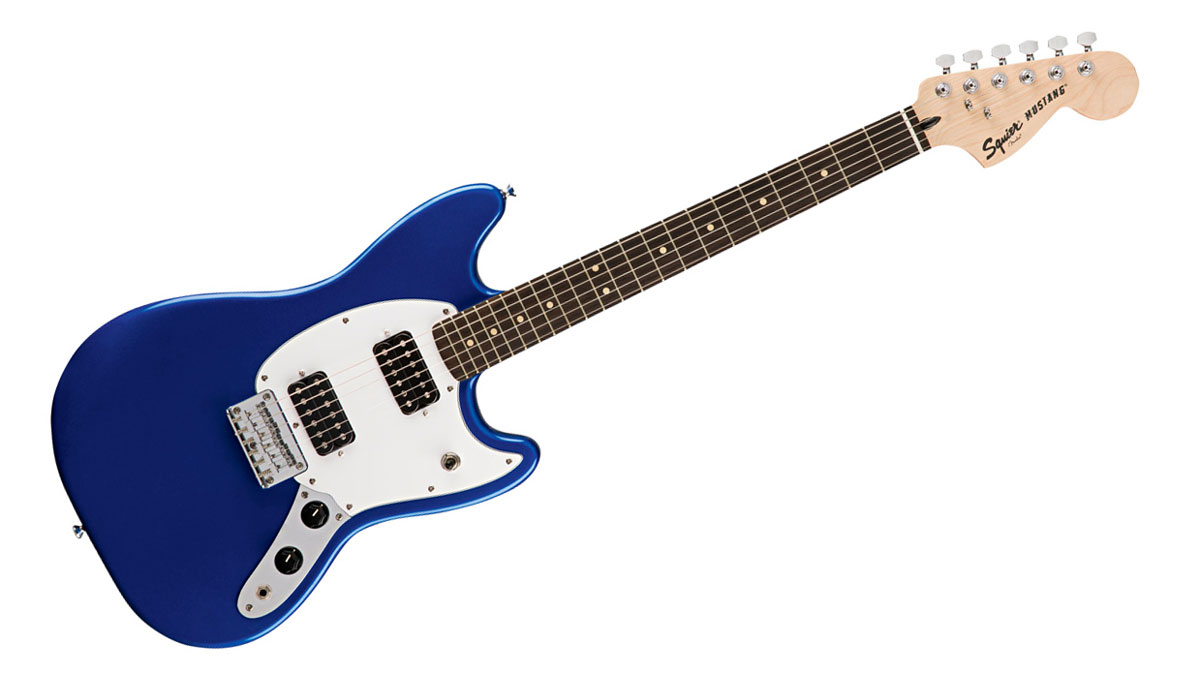
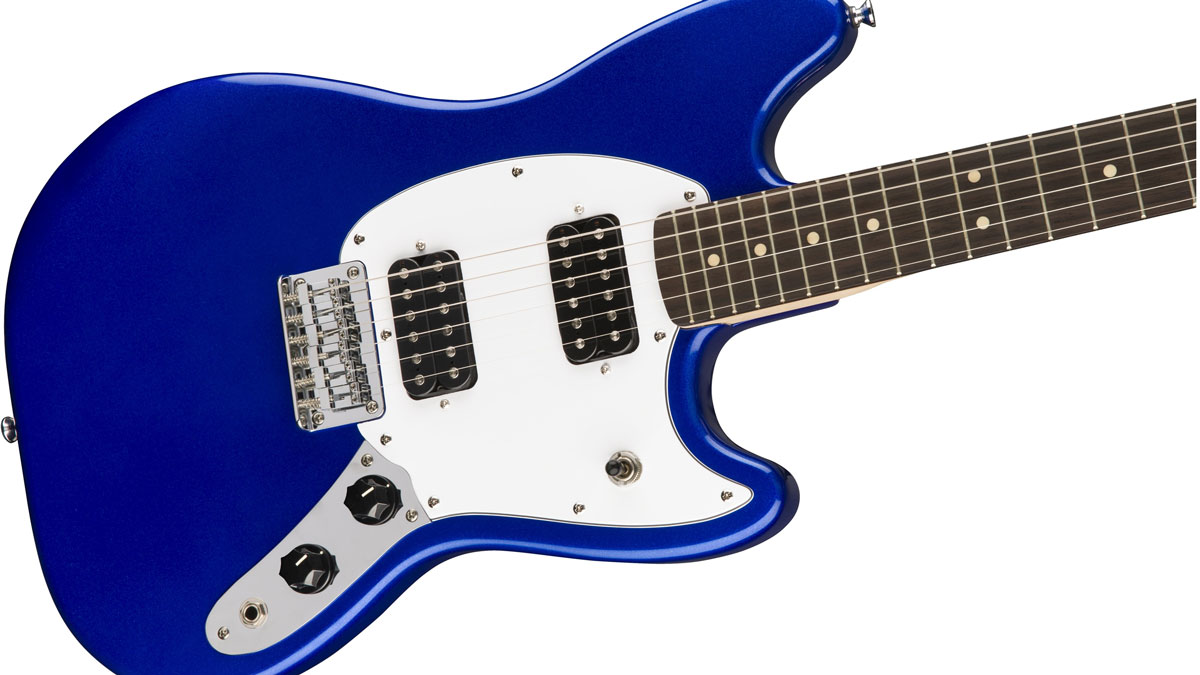
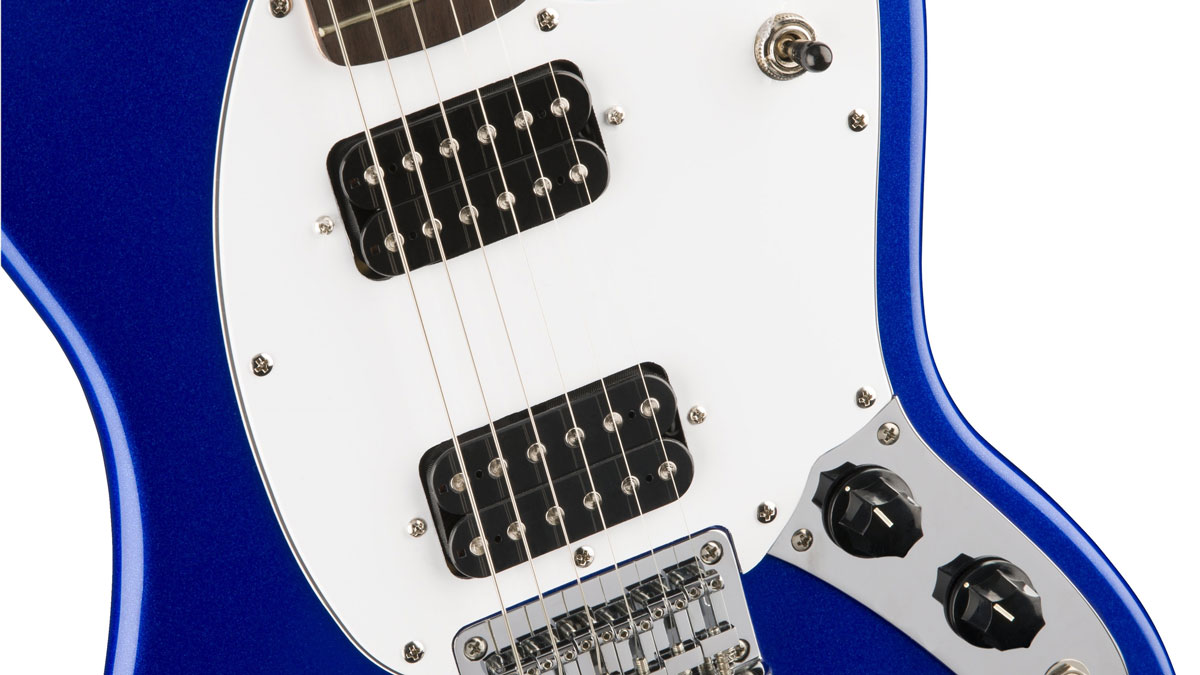
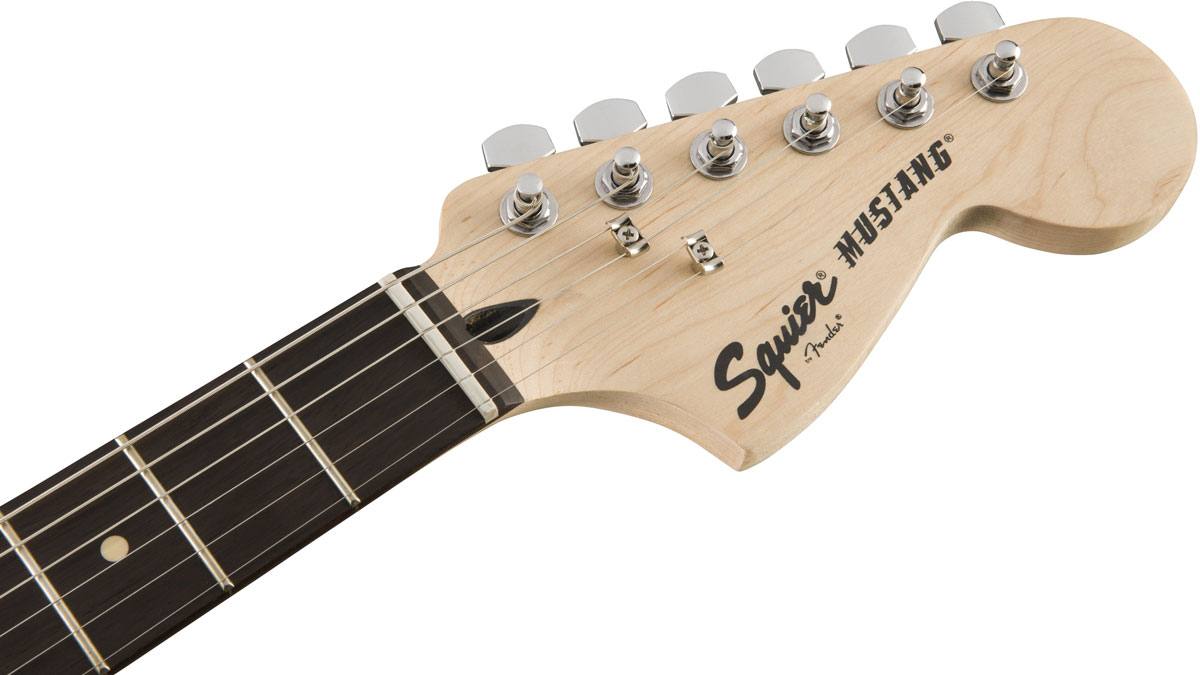
Specifications
Reasons to buy
Reasons to avoid
Squier's Bullet Mustang is one of the coolest Squier guitars available on the market today. Taking the short scale, sort-of offset body and great playability from the traditional Mustang, the Bullet version has been refreshed, reignited and hot-rodded to another level - all while staying firmly in the budget and beginner price bracket.
The Bullet Mustang HH is a simple guitar, and as a result really helps you focus on just playing the thing. Equipped with two full-size, high output humbuckers, a hardtail bridge and a set of solid machine heads, we've got a lot of confidence in the Mustang HH to put up with the routine use and abuse that electric guitars often get. Intonation and tuning issues are kept to a minimum by this super-solid hardware too - something which honestly surprised us.
Like all Mustangs, this one is also a short-scale guitar - meaning that the scale length - the distance between the bridge saddles and the nut of the guitar - is shorter than the usual Fender-style scale length of 25.5” by an inch and a half. This doesn't sound like a lot on paper, but in reality the lighter string tension and shorter distance between frets makes this Mustang incredibly easy to play. If you’ve got big hands you might struggle, but fear not - there’s plenty of full-scale options on the market too.
Read the full Squier Bullet Mustang HH review
Best cheap offset
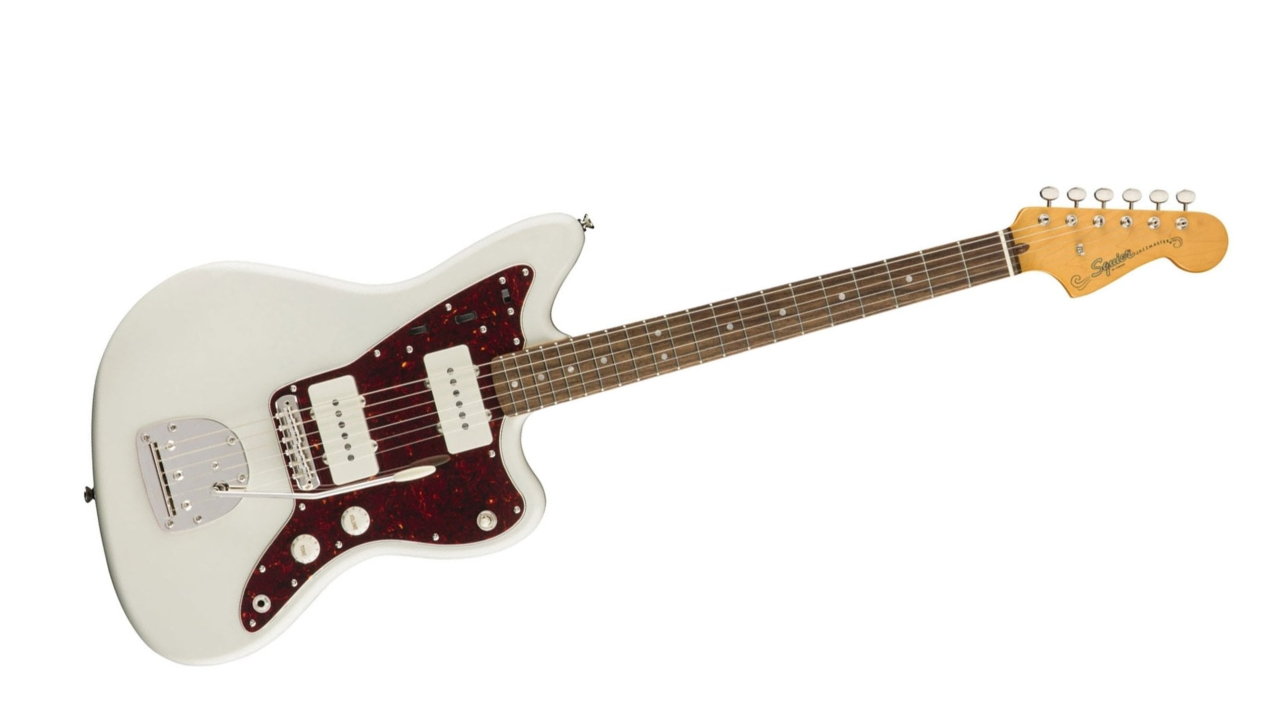
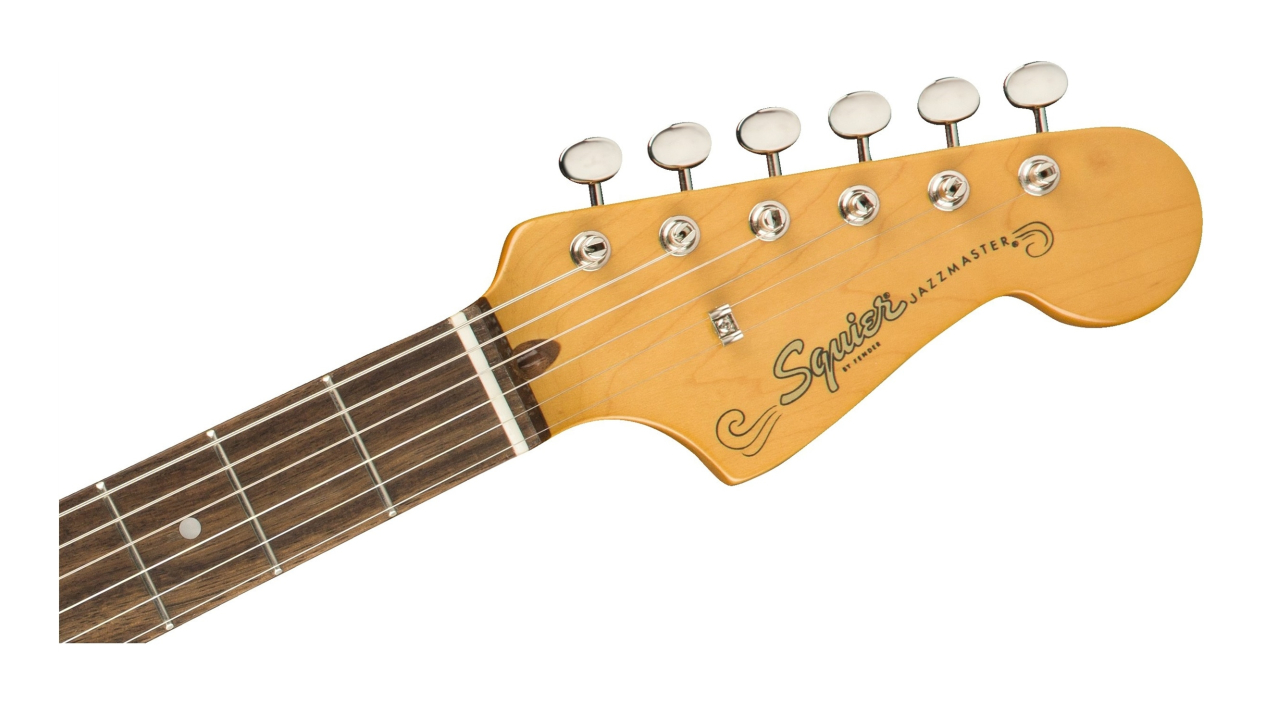
6. Squier Classic Vibe ‘60s Jazzmaster
Our expert review:
Specifications
Reasons to buy
Reasons to avoid
We’ve seen a bit of a Jazzmaster revival over the last few years, with anyone from Alex Turner of Arctic Monkeys to Jim Root of Slipknot playing one.
The Fender formula of a 25.5” scale length and single coil pickups is one that’s as old as the hills, but the offset design still feels modern over 60 years later.
The ‘60s Classic Vibe has an Indian Laurel fretboard adorned with era-appropriate Narrow Tall frets, which provide a slightly more old-school playing surface - a throwback to the early days of these iconic guitars - and the Fender-designed pickups offer up plenty of guts when needed. This Jazzmaster is a real Swiss Army Knife guitar, suitable for any age or ability.
More options...
So those are our top picks, but there are many more great options to choose from that offer something a little different in terms of features and performance. We've selected some more of our favourites below.
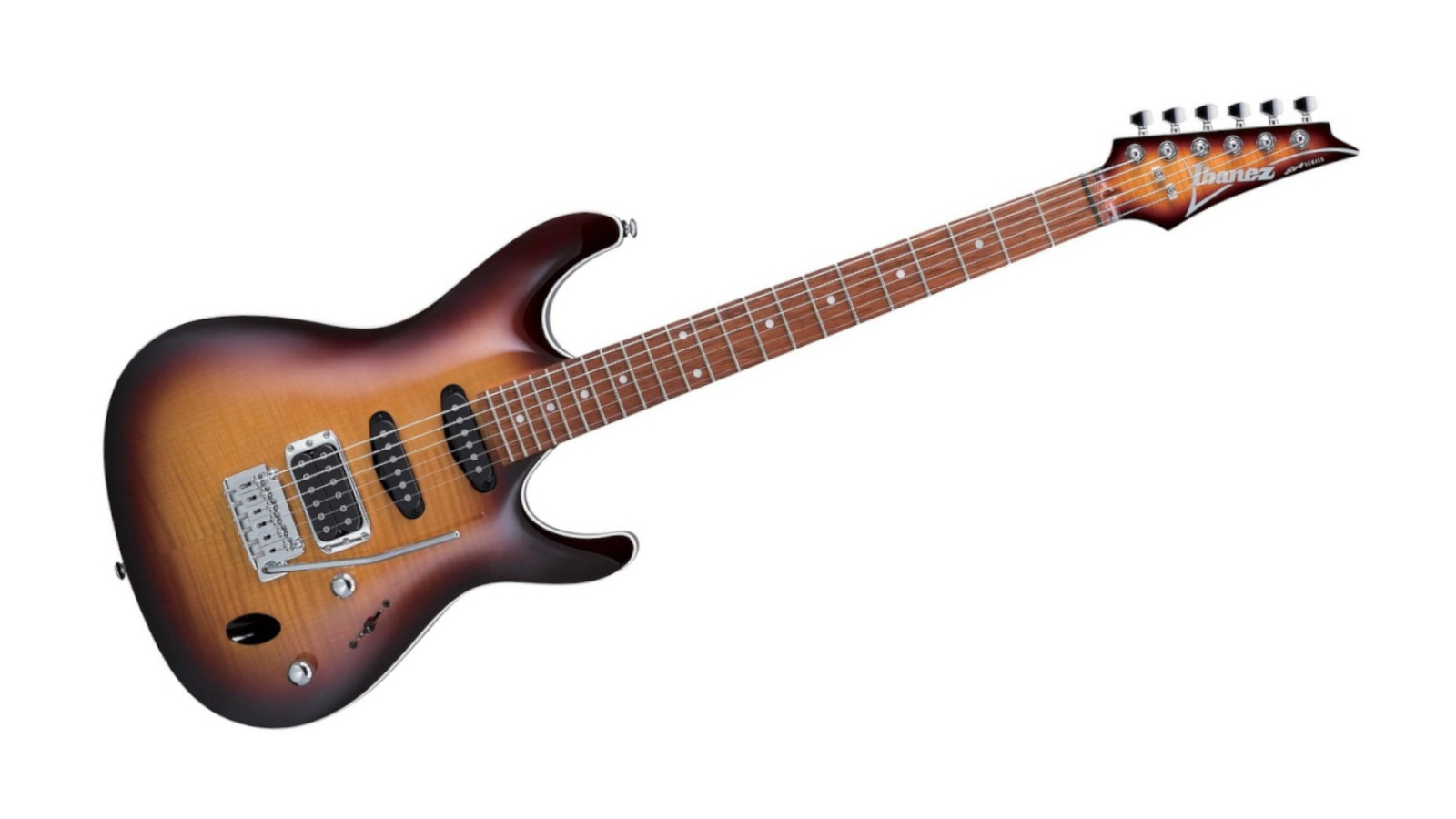
7. Ibanez SA260FM
Our expert review:
Specifications
Reasons to buy
Reasons to avoid
Ibanez are known for making amazing shredder-friendly guitars (amongst other things), with some of rock’s biggest players looking to the brand for their punchy tone. This model has a really versatile HSS pickup configuration. The humbucker in the bridge position has a high output, but retains clarity and definition. You’ve then got two single coils that offer a wider range of tones. Whether it’s rock, metal, blues or anything else really, this thing has you covered.
The guitar is nice and thin too; this lightens the load if you’re playing standing up, and is ergonomic if you’re playing sat down. The neck profile is also thin, making it ideal for speedy lead players. You also get a nice trem system, allowing for both subtle vibrato and crazy dive-bombs. All in all, a great do-it-all guitar and amazing value for money.
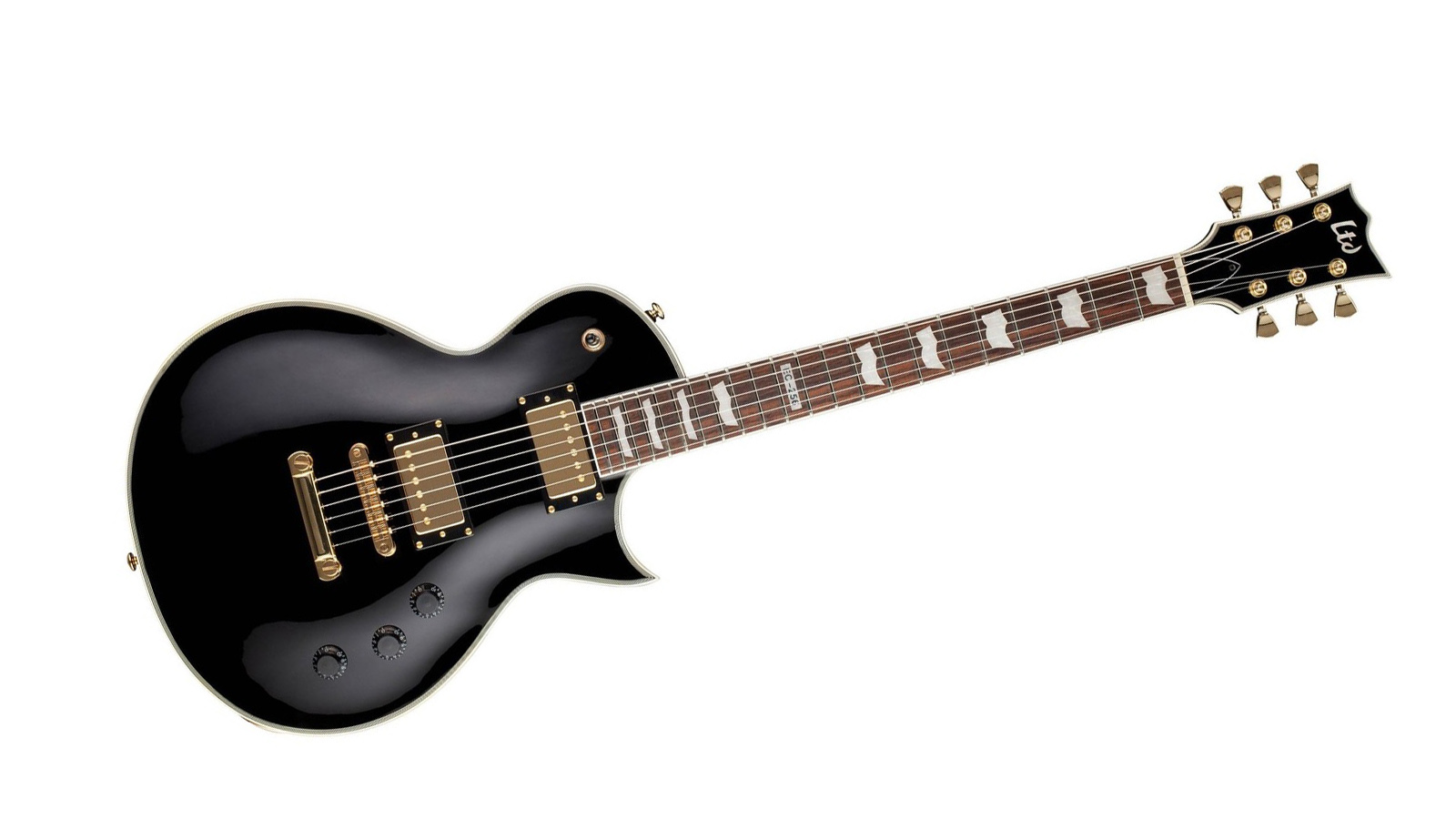
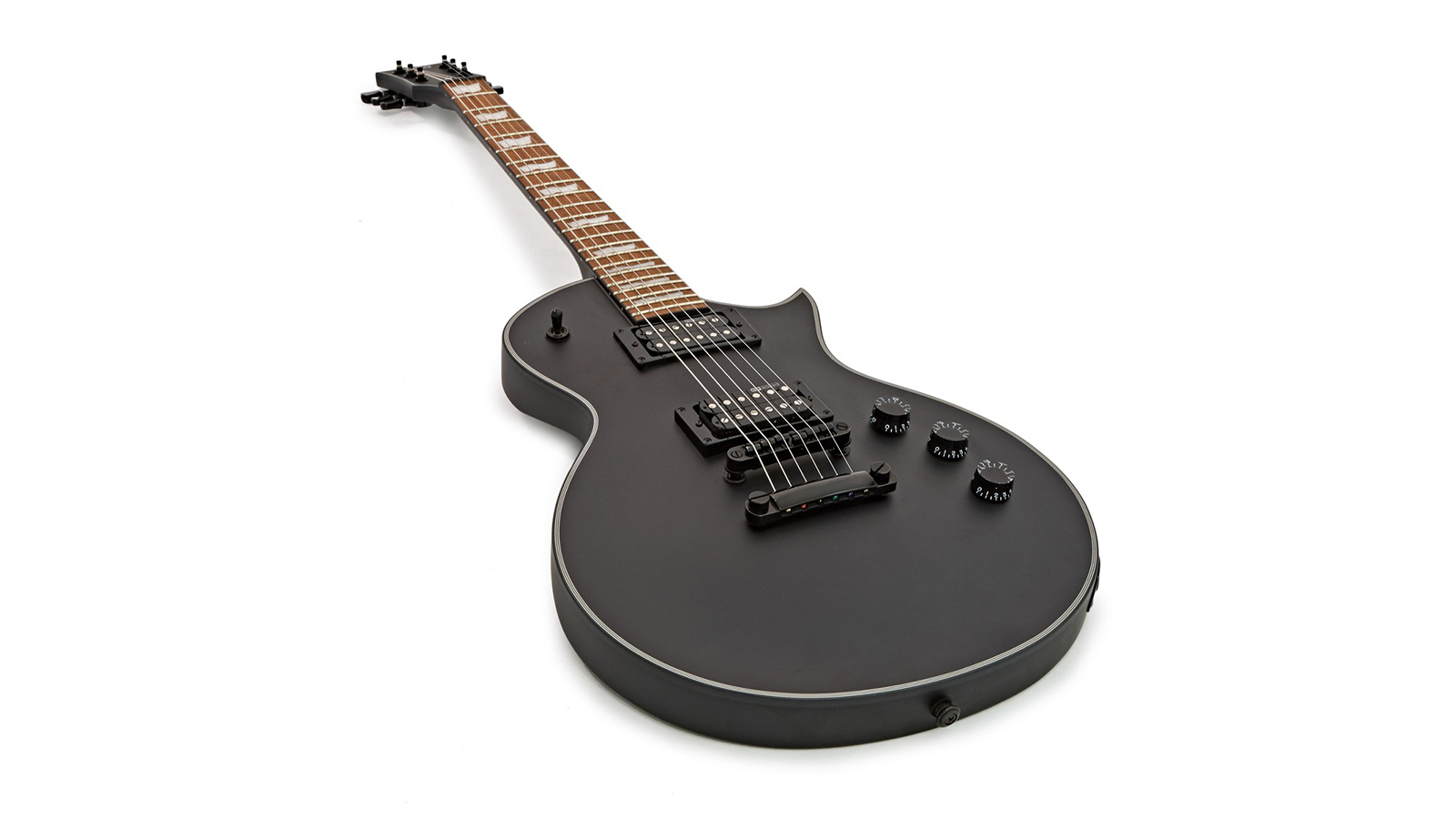
Specifications
Reasons to buy
Reasons to avoid
While the obvious choice for a Les Paul shape in this list would have been an Epiphone, we would veer more towards the superb LTD EC-256, particularly for rock and metal players. You get a slim-profile mahogany body and set neck, which deliver great sustain, and the ESP-designed humbuckers will cover a lot of ground tonally.
What we liked about the EC-256 was the blank canvas it offers keen modders. As a base onto which you can add your own pickups, and tinker with other enhancements, the EC-256 is ready for whatever you can throw at it. We did have some slight reservations about the glossy finish, particularly on the neck, but that could be down to personal preference. Overall, there’s a lot to like about the LTD.
Read the full LTD EC-256 review
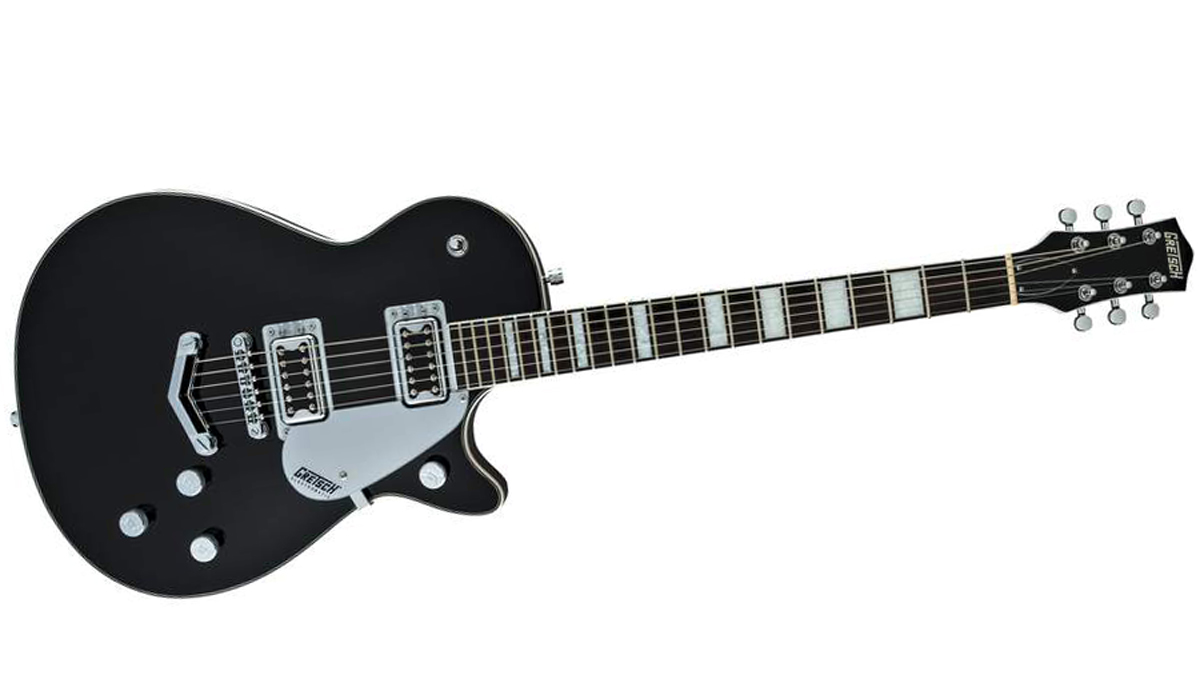
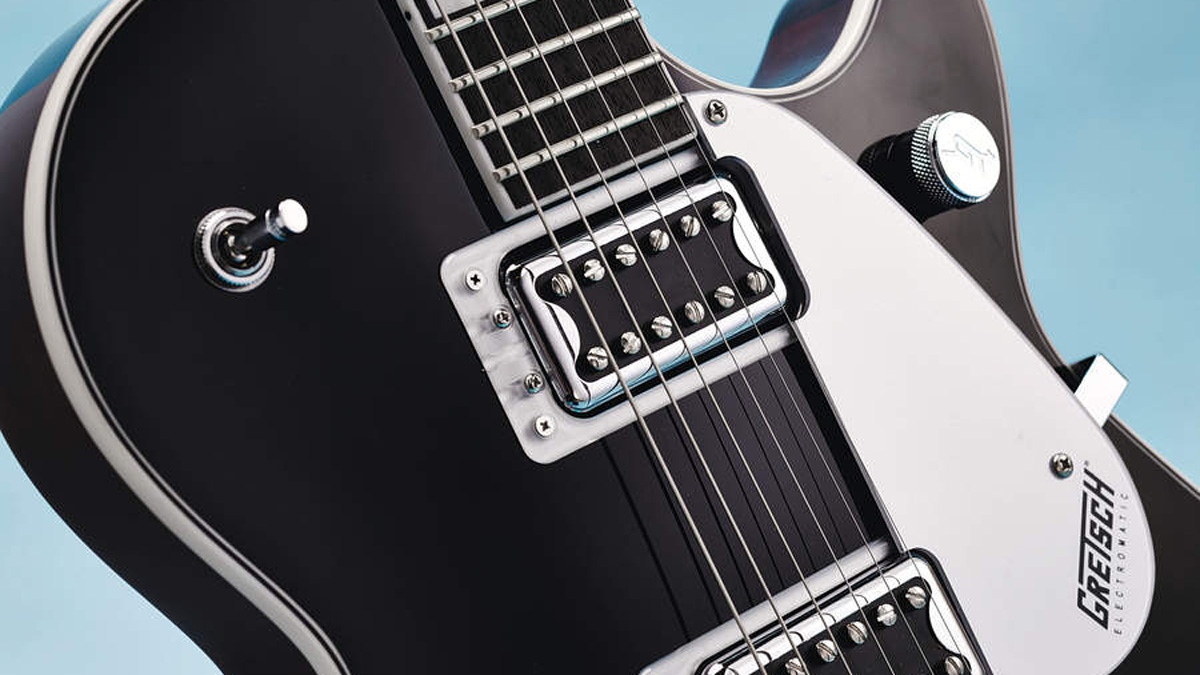
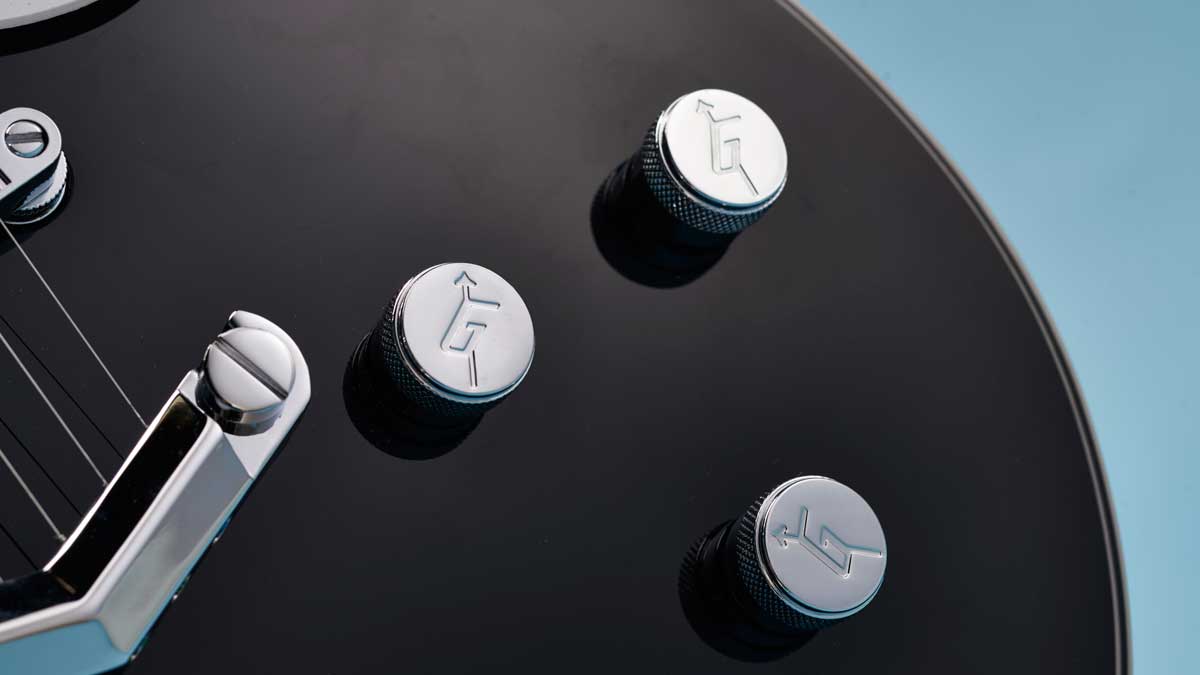
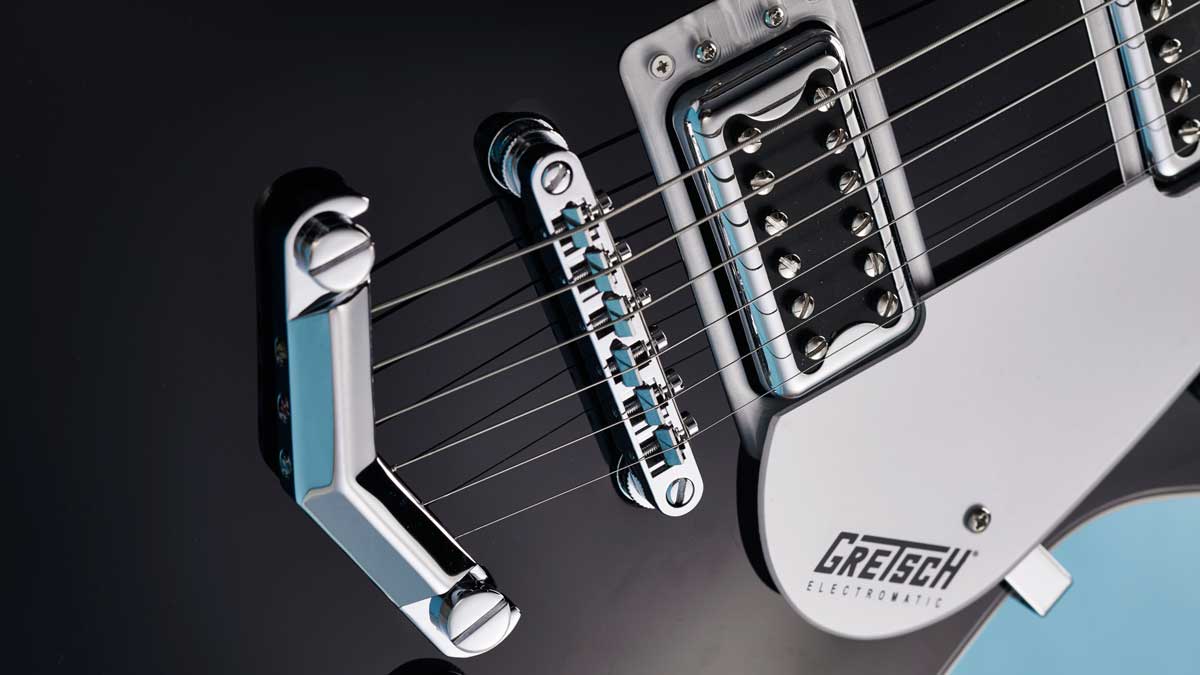
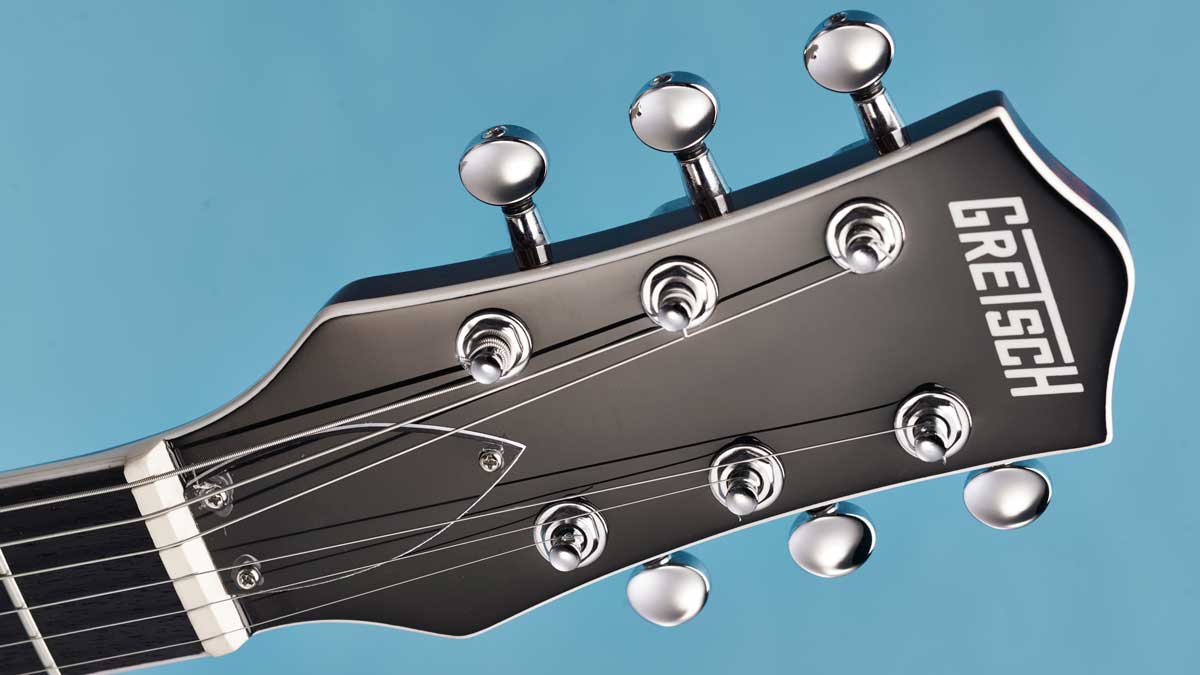
Specifications
Reasons to buy
Reasons to avoid
This is a mahogany single-cut that offers a genuine alternative to the Les Paul approach without trying to ape it. It's packing two Broad’Tron pickups - a humbucker-sized Filter’Tron-style (PAF warmth and single-coil brightness). If you wrinkle your nose at some of the darker character in humbucker-loaded single-cuts, these could be a surprising treat.
The responsiveness of the Broad’Trons here yields impressive harmonic detail when we test it with both tube amp drive and a Tube Screamer - for expressive, sustaining violin-esque lead work it’s inspiring and touch-sensitive. But get into traditional AC/DC and even metal territory and eyebrows start raising; it sounds like something that can really chase a Les Paul in the fat-but-articulated stakes.
Gretsch has pulled a classic style into the present here with wider potential appeal, because the sheer versatility and finish quality for the money makes this the kind of deal that you’ll always find space for in the house.
Read the full Gretsch G5220 Electromatic Jet BT Single-Cut review
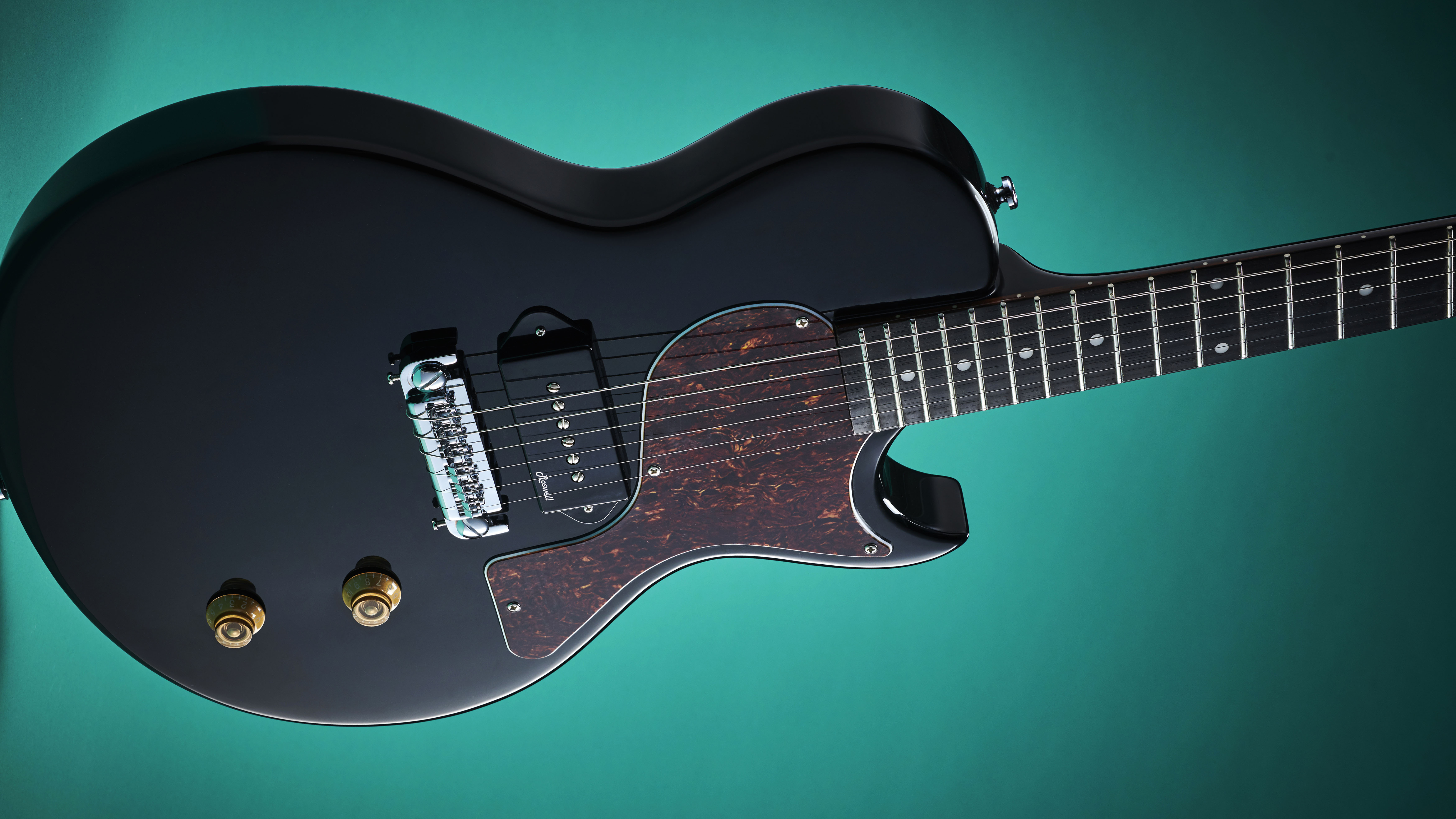
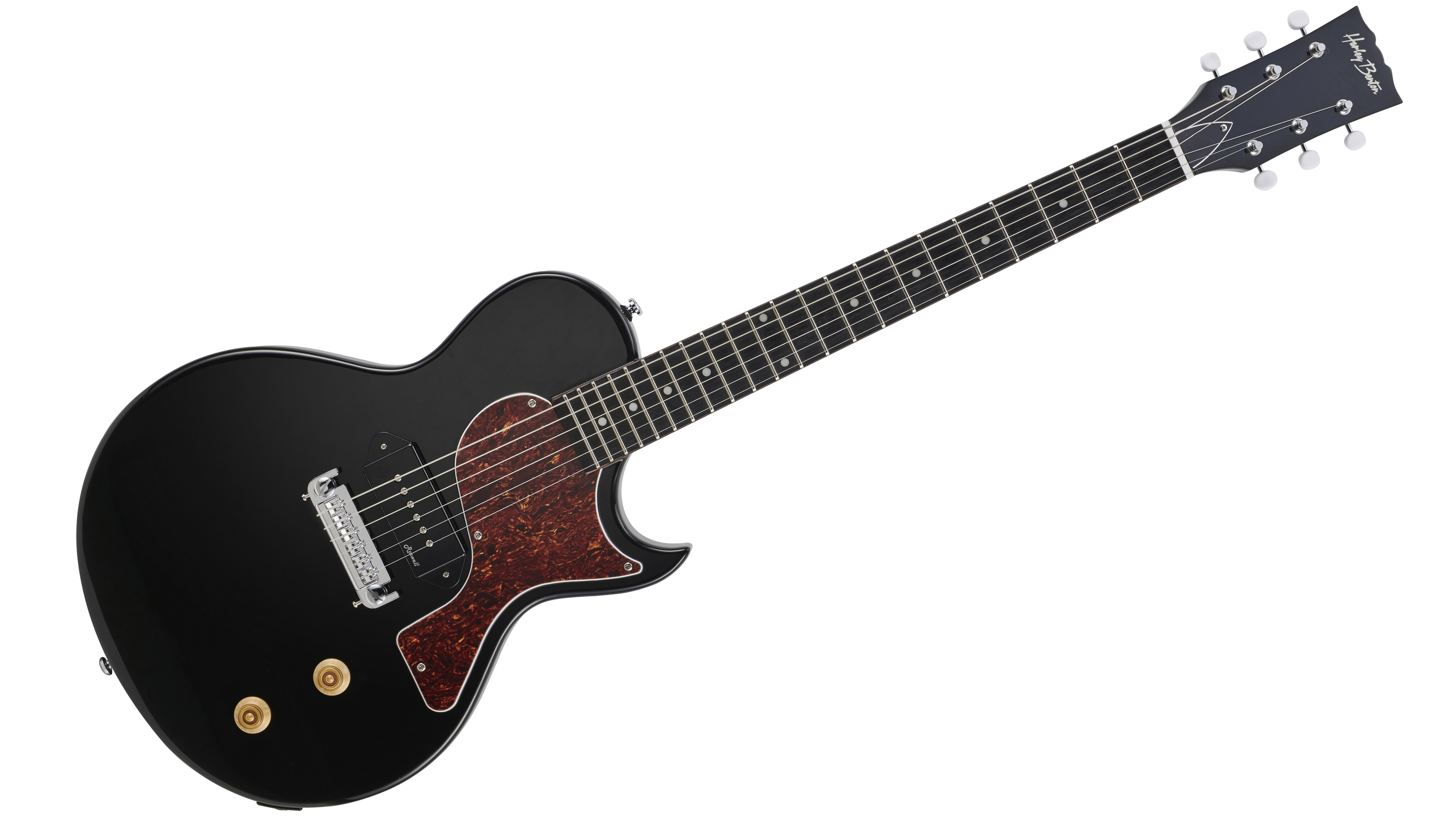
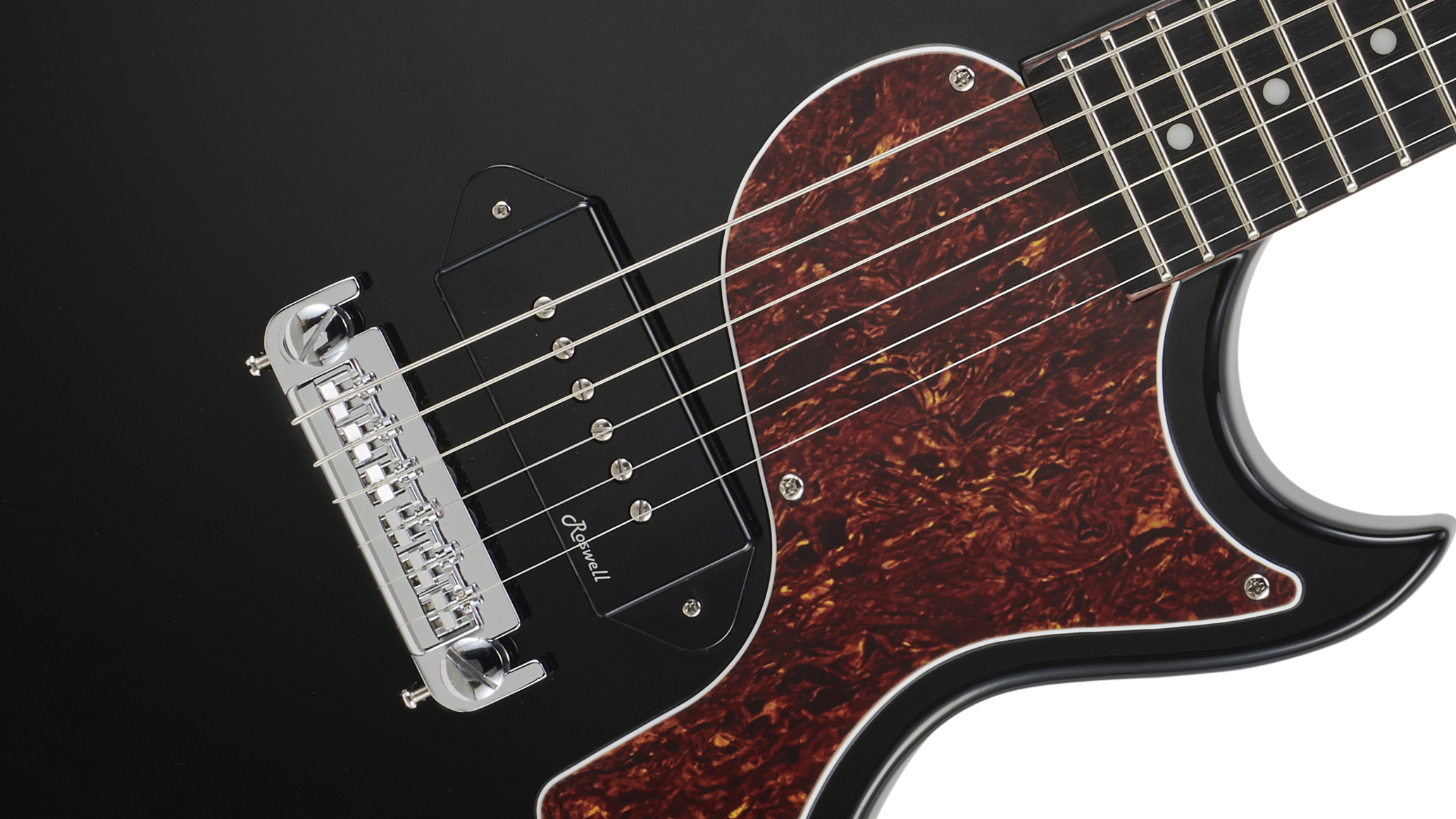
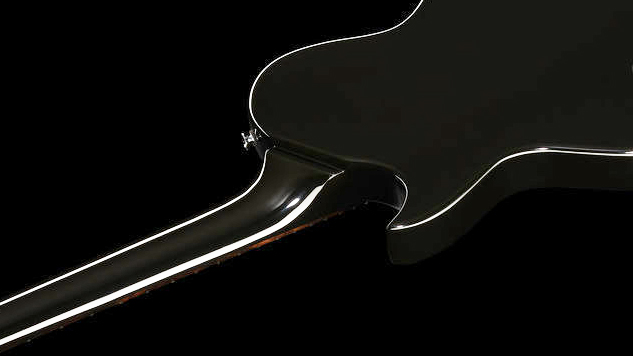
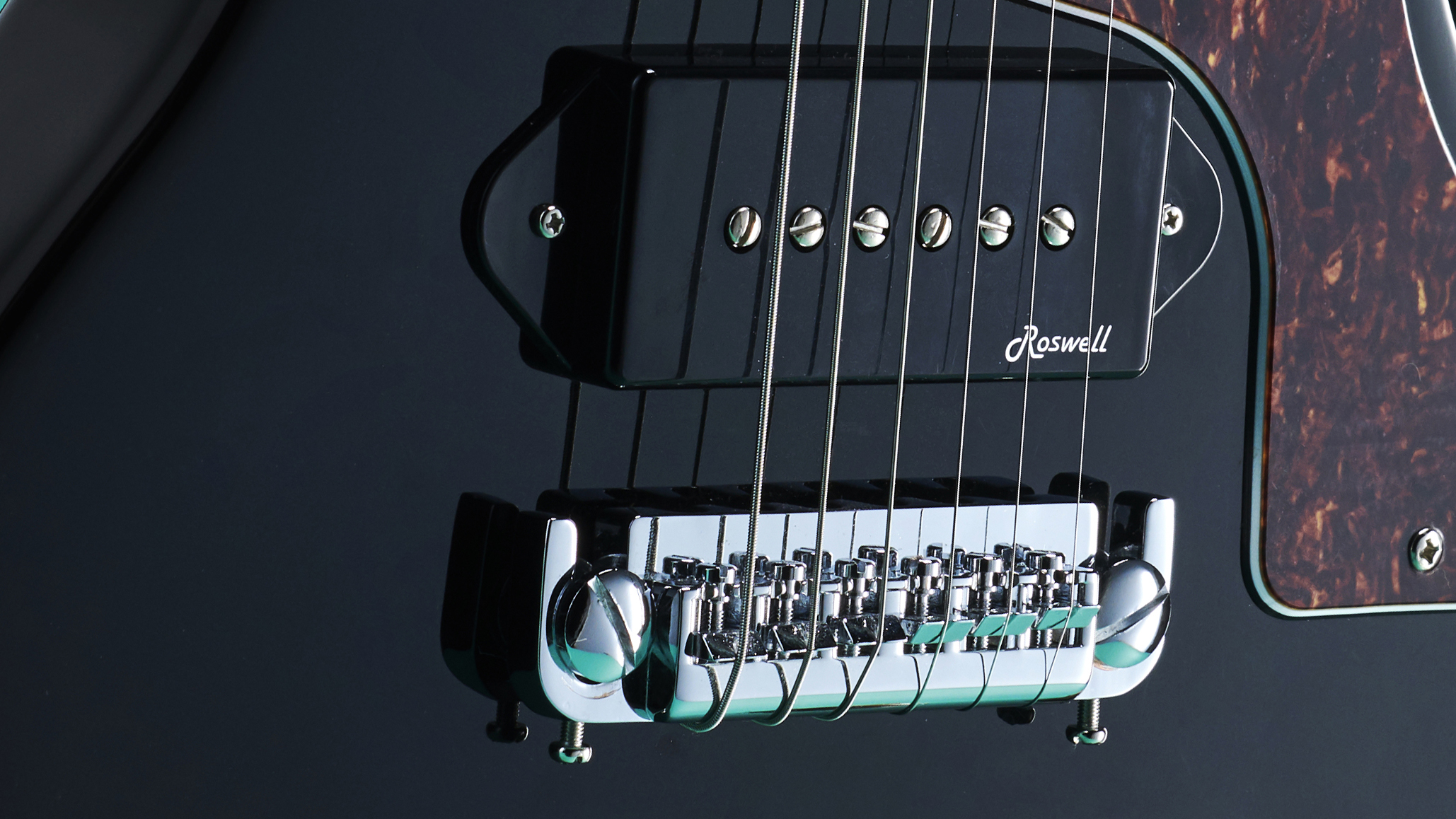
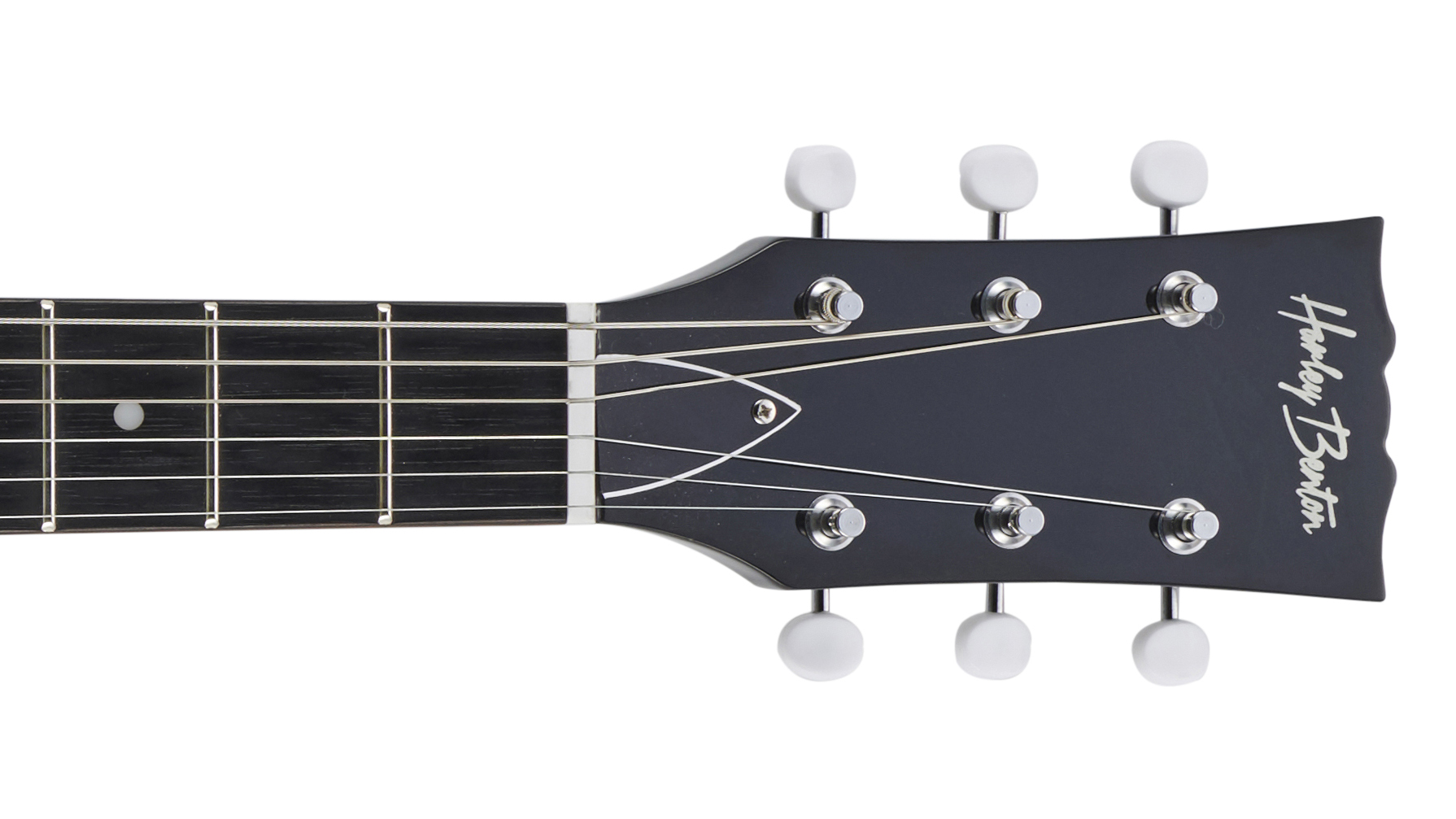
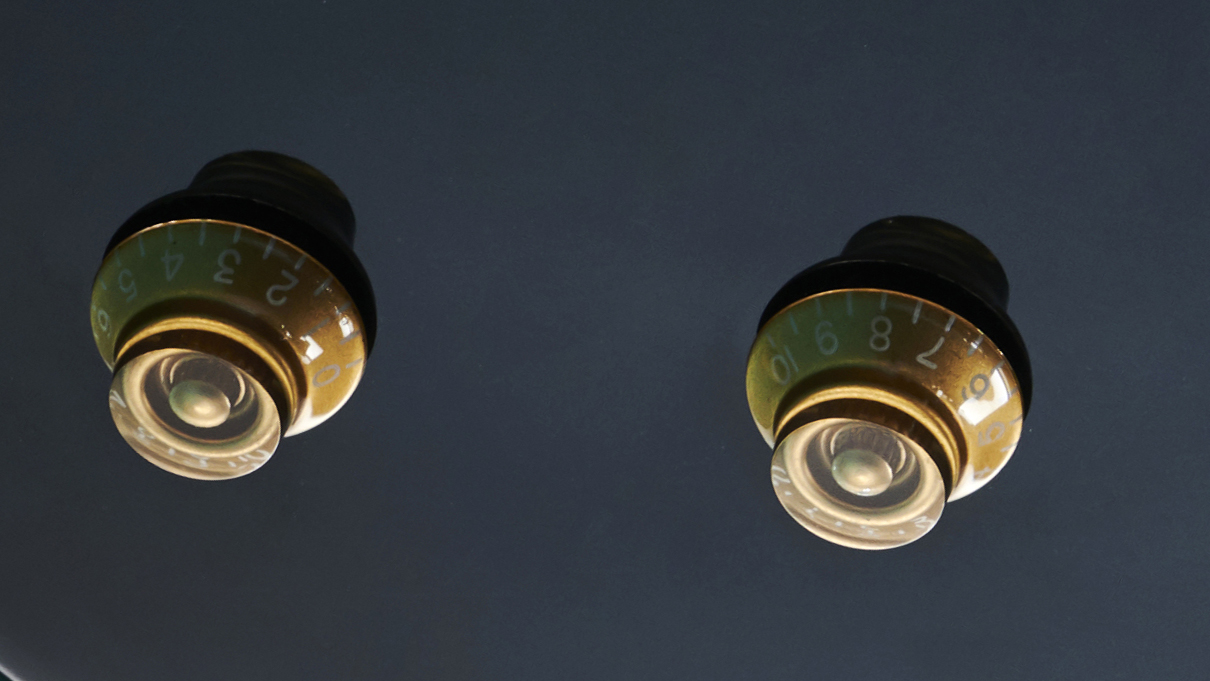
Specifications
Reasons to buy
Reasons to avoid
Harley Benton has a proven reputation for great value, but even so, this LP Junior-style electric is a real bargain. While its ingredients of a mahogany build and single Roswell P-90 single-coil pickup seem simple, they make for a streamlined and classic look here and actually provide a surprising range of tones.
The SC-Junior's responsive tone and volume controls effectively allow you to move from your overdriven amp sound to cleaner territory without touching the amp or any pedals. Combined with a wonderfully playable neck experience, this is a great guitar for newcomers or anyone who wants to try a more streamlined approach with electric guitar.
Read the full Harley Benton SC-Junior review
Buying advice
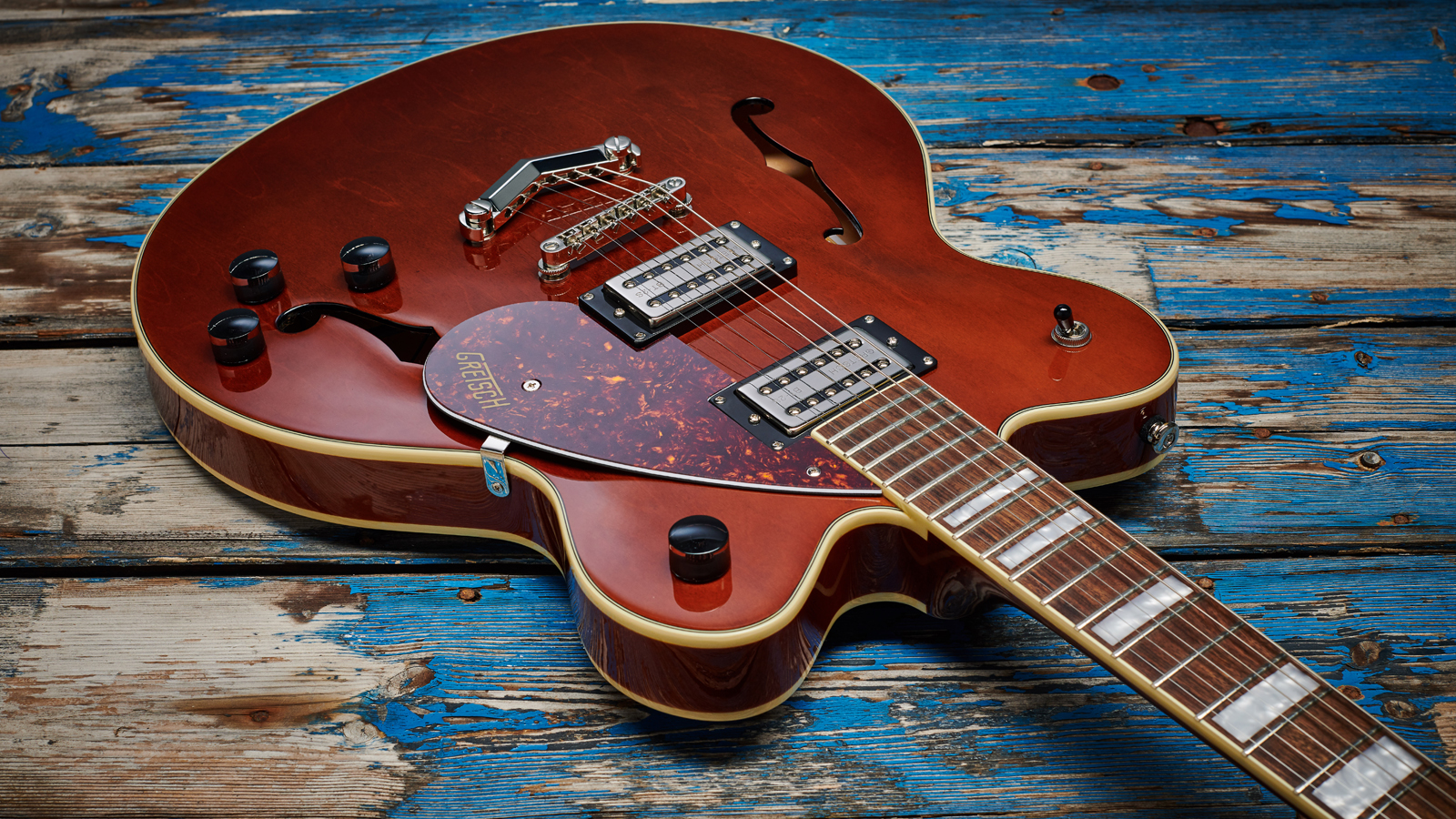
There are a few things to consider when you're looking for the best cheap electric guitar. Even though this is seen as an "entry-level" category, there's still a lot to think about. From construction to features, performance to finish, there are significant differences between all of these guitars.
What’s the difference between a cheap guitar and a more expensive one?
If a guitar is cheap, then generally, the parts used to make it are going to be cheaper, which usually means they’re of a lesser standard. Firstly, the wood used will probably be cheaper and more readily available – it might even be made up of a few parts, whereas more expensive guitars have bodies made up of one or two pieces.
The pickups aren’t usually quite as good either. Nowadays, it’s hard to find a cheap guitar with terrible pickups, as long as you’re looking at something from a reputable brand. But on more expensive guitars, you’ll find that the pickups tend to be more dynamic, responsive and have a wider frequency range. The added nuance you get with more expensive pickups is slight, but more experienced ears and hands can usually tell the difference. That said, all our picks of the best cheap guitars have decent pickups.
More expensive guitars will more often than not feature better hardware too. This all helps the guitar play and stay in tune better, as well as keep everything in place where it should be. Quality hardware can also improve how the guitar feels to play, so all in all it’s quite important. That’s not to say that all budget instruments have bad hardware. Sure it won’t be quite as premium, but the best cheap electric guitars will be kitted out with hardware that does the job for years to come, to make it a reliable workhorse.
Should I spend more?
To paraphrase the great Dr. Ian Malcolm, many players are so preoccupied with whether they could spend more, they don't stop to think if they should. As this guide proves, there are many options out there for players looking for a high-quality instrument on a budget.
While it's true that more expensive guitars often feature improvements in playability and tone, the truth is that to some players these minor advancements aren't worth the extra cost. The line between an entry-level "beginner" guitar and one aimed at intermediate players is becoming increasingly blurred, and these days you need to jump up to a far more expensive American or Japanese instrument for the differences to become way more apparent.
It's important for us to mention, however, that there's no shame in wanting a big brand name on your headstock. If you're dead set on a full-fat Fender Stratocaster or Telecaster, then go for it - they're great guitars, and you'll get decades of joy from one. What we're trying to say is that you don't need to spend that kind of money to get something great.
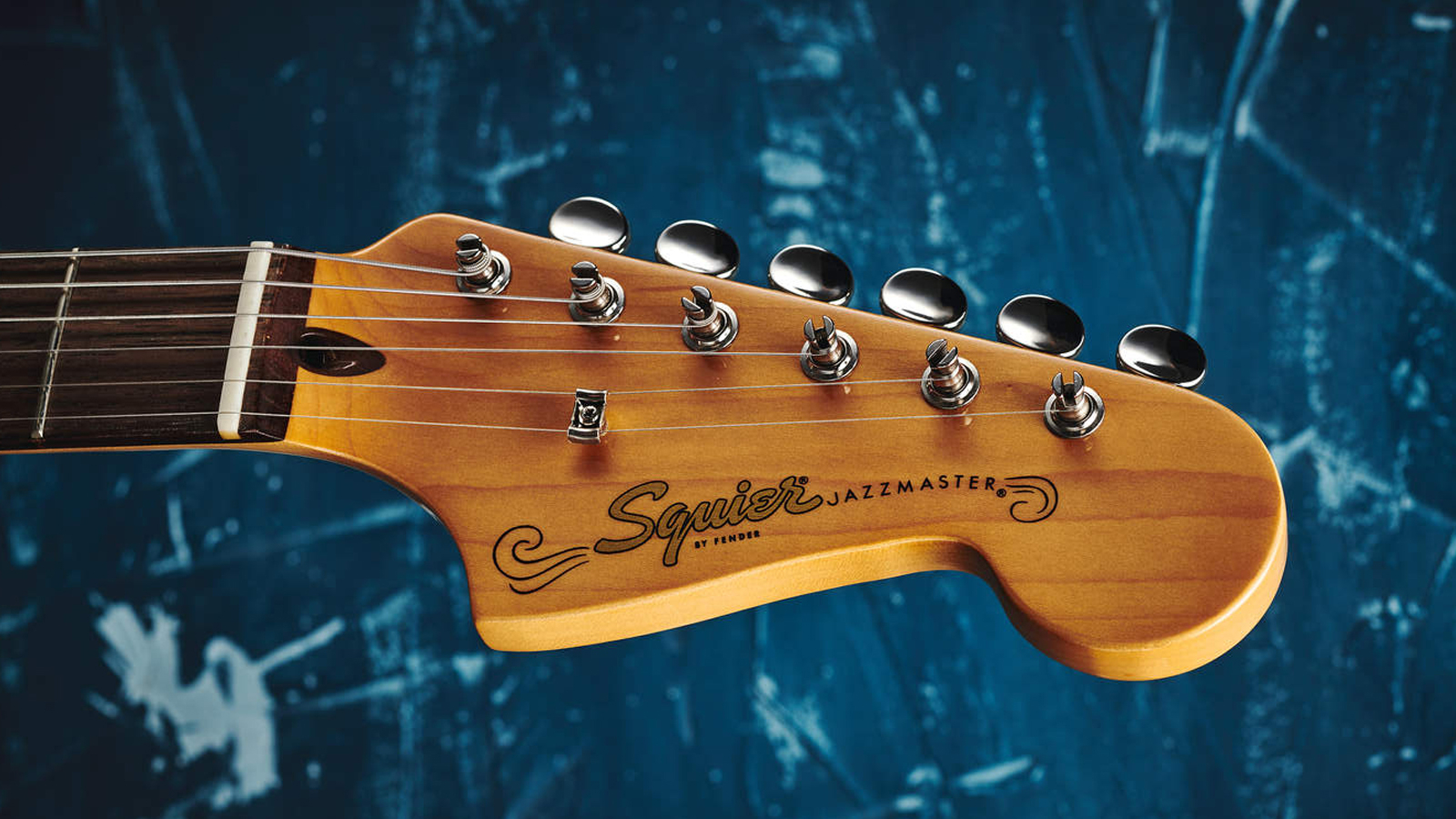
How do I choose the right budget electric guitar?
The best cheap electric guitar for you will also depend on what sort of music you play. There aren’t set rules, but certain features will make accessing particular sounds and techniques a bit easier.
If you’re into rock or metal, then humbuckers will give you a bit more output, as opposed to single coil pickups. Humbuckers generally yield a fatter and warmer sound, whereas single coils are brighter and thinner sounding. Neither is better per se, it’s just what you want out of it. Some guitars give you the best of both worlds with a combination of both single coils and humbuckers. It’s worth noting though that these are all fairly general statements, as individual guitars will all have their own tonal characteristics.
Features like a thin neck profile might aid players who are looking to play really quick lead lines – you’ll often find these on guitars with high output pickups too. Some of the best cheap electric guitars may feature a tremolo or whammy bar too – these can help you add texture to your sound, or even create wild sound effects.
How we choose products
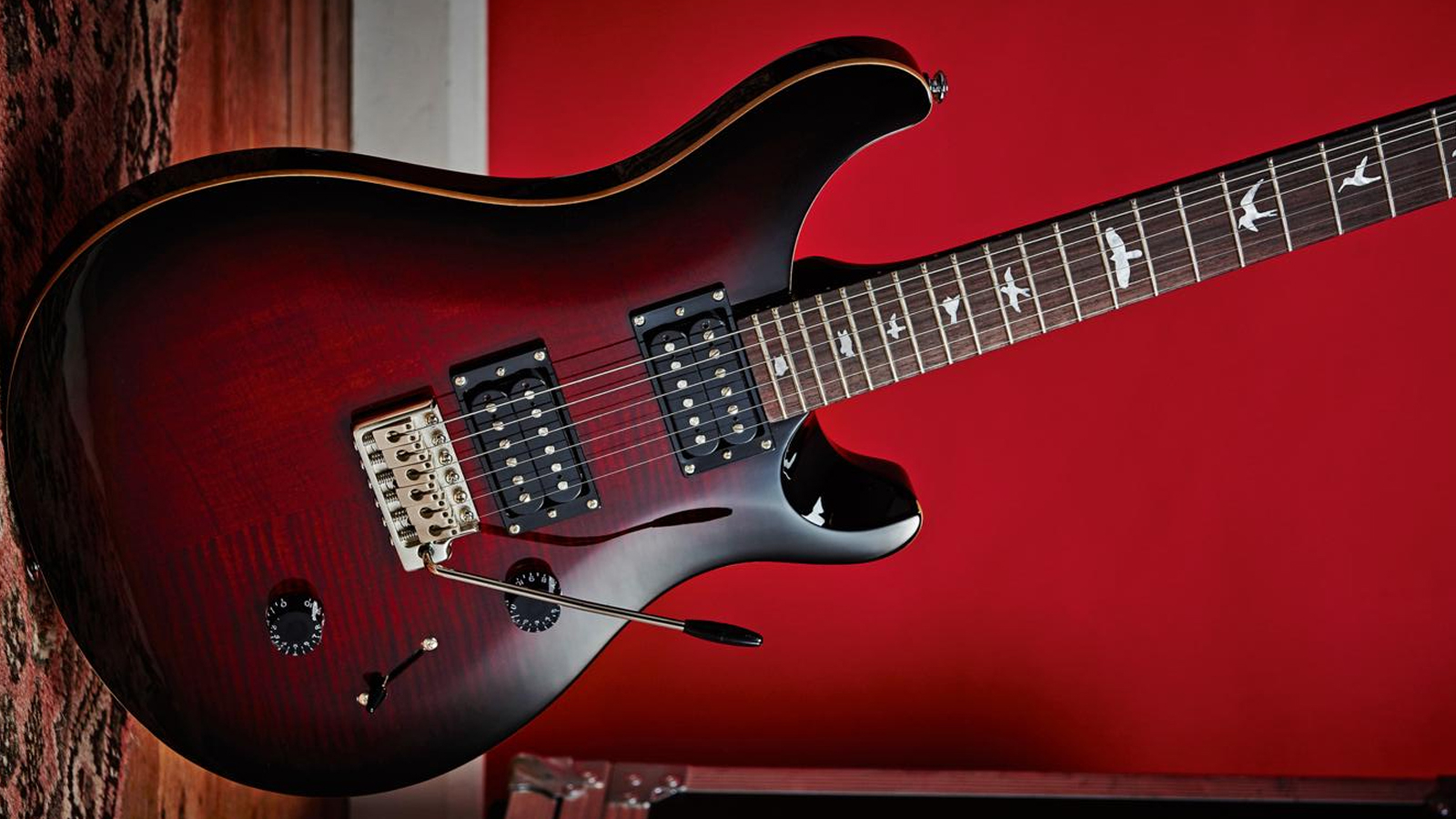
Here at MusicRadar, we are experts in our field, with many years of playing, creating and product testing between us. We live and breathe everything music gear-related, and we draw on this knowledge and experience of using products in live, recording and rehearsal scenarios when selecting the products for our guides.
When choosing what we believe to be the best cheap electric guitars available right now, we combine our hands-on experience, user reviews and testimonies and engage in lengthy discussions with our editorial colleagues to reach a consensus about the top products in any given category.
First and foremost, we are musicians, and we want other players to find the right product for them. So we take into careful consideration everything from budget to feature set, ease of use and durability to come up with a list of what we can safely say are the best cheap electric guitars on the market right now.
Find out more about how we test music gear and services at MusicRadar.
Related buyer's guides
MusicRadar's got your back
- The best cheap acoustic guitars on the planet right now
- Keep it safe with the best guitar cases and gig bags
- Lefties assemble! These are the best left-handed guitars around
- Explore the best electric guitars for beginners
- Need a guitar for your little one? Check out the best guitars for kids
Get the MusicRadar Newsletter
Want all the hottest music and gear news, reviews, deals, features and more, direct to your inbox? Sign up here.
Chris Corfield is a journalist with over 12 years of experience writing for some of the music world's biggest brands including Orange Amplification, MusicRadar, Guitar World, Total Guitar and Dawsons Music. Chris loves getting nerdy about everything from guitar and bass gear, to synths, microphones, DJ gear and music production hardware.
- James Farmer
- Daryl RobertsonSenior Deals Writer
“A guitar with the same style and massive sound Eddie Van Halen created all at an affordable price”: EVH Gear reimagines the Wolfgang Standard as a high-performance shredder with a TOM bridge
“It is ingrained with my artwork, an art piece that I had done years ago called Sunburst”: Serj Tankian and the Gibson Custom Shop team up for limited edition signature Foundations Les Paul Modern
